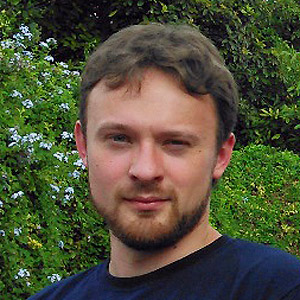 I hardly know how to express how terrible it was to lose my friend, Mike Apyshkov, this last weekend. Some of the light went out of the sky for me when I received the news that he had fallen to his death from the top of one of Kyiv’s tallest and trendiest skyscrapers in Ukraine, at the Olympic business center (Олимпийский).
I hardly know how to express how terrible it was to lose my friend, Mike Apyshkov, this last weekend. Some of the light went out of the sky for me when I received the news that he had fallen to his death from the top of one of Kyiv’s tallest and trendiest skyscrapers in Ukraine, at the Olympic business center (Олимпийский).
To say that Mike was one of my friends seems to understate what he was to me. Certainly he was a friend, but it was deeper than “just a friend”. He was an inspiration to me, a protégé, a roommate, an adoptive son, a colleague, a collaborator, and a sort of a muse. I feel it all the more intensely because he has left as abruptly as he came into my life, and at far too young an age: 26 years old.
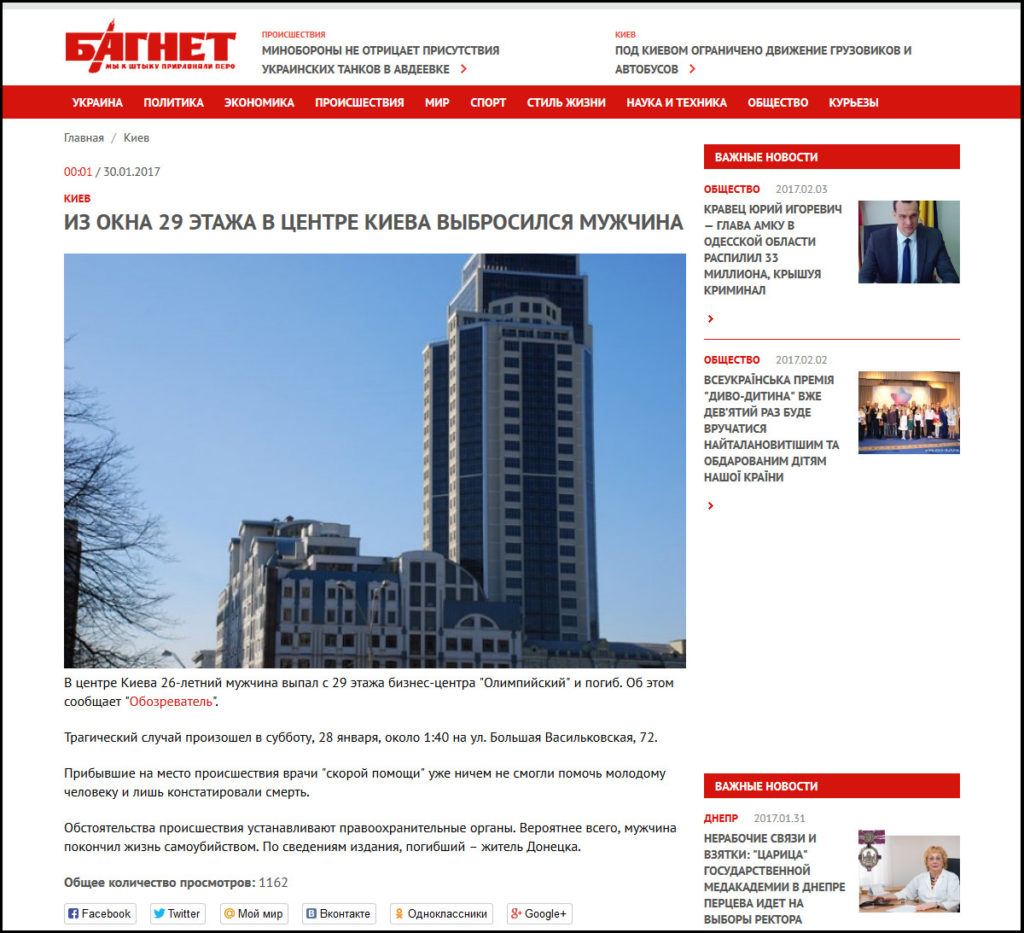
The Ukrainian news story – a young man fell from the 29th floor of the Olympic business center. (source)
I’m unable to attend Mike’s funeral this week in Ukraine, and so I’ll write a bit about him here on my blog as a tribute and as a means of mourning him. Word of his passing has left me raw, and weak, and it seems some of the air has gone out of my lungs and I cannot regain it, no matter how much I inhale. I also set up an online memorial site at: Mike Aphyskov: Forever Missed.
How I Came To Know Mike Apyshkov
I met Mike through another good friend of mine — his father. Vlad worked with me when we were both at Verizon’s Superpages, and we became good friends after I left the company in 2007. In about 2011, Vlad notified a number of his friends that he was delighted by the fact that his son, Mike, was moving here to Dallas to live with Vlad and to go through the process of becoming a U.S. citizen. I don’t precisely remember that first meeting, but it was probably at some restaurant for dinner. I didn’t have much interaction with Mike until a few months later when Vlad had to leave the country for some weeks on business, and he asked me to be available in case Mike needed help with anything while Vlad was away, since Mike was unfamiliar with the city and with the American ways of doing things.

Mike, doing a sort of planking pose in a hallway at Donetsk National University in the Mathematics Facility. Playful, gymnastic interactions with his environment were something he was always doing.
When I realized that Mike was going to be all alone at Vlad’s house for the last few weeks of November, I immediately felt that he absolutely had to experience a traditional American Thanksgiving. My mother, who lives down in central Texas, readily agreed — in fact, bringing in foreigners for our Thanksgiving feast is a very long tradition in our family, and it likely started because my parents were professors and we lived in academic communities where there were always people who were far away from their homes during the holidays. I was going to my mother’s place a few days early, and planned to work from my father’s old home office before Thanksgiving day. Mike agreed to go with me early, and he worked on his computer from the office as well.
Thanksgiving With My Family
The Thanksgiving trip was where we really got to know one another. The three hour car trip, one-way, and then days spent in my family’s home — it gave us a lot of opportunities to talk about simply everything. I’m not really exaggerating to say that we had many commonalities. While I’m best known for internet technology expertise, my college education was in design. Mike’s background was heavily in math, but he loved design and had been independently studying it. So, we’re both maybe just a little atypical in that we use both sides of our brains.
I came to learn about his past successes in major math competitions, his enjoyment of exercise and physical development, and about his adventures growing up as a boy in Ukraine. He learned of my obsession with all variations of Rubik’s Cube types of puzzles, and I learned about his fascination with math/logic riddles (he would *not* stop asking me logic riddles!) and he described how in Donetsk he had loved devising these extensive “City Quest” experiences in collaboration with others — which are apparently very involved scavenger hunts mixed with logic puzzles mixed with Parkour — sort of like the popular “escape rooms”, but made on a city-wide scale and somewhat more athletic.
His IQ was off the charts, and he seemed to have read up on nearly twice as much science and math as I have (surely not possible considering my parents were both PhDs and I grew up in academia, and my greatest pasttime was reading…?!?) — not to mention that he also had learned English (alright, he sometimes struggled with that, but who doesn’t?) and he mastered a number of little gymnastics feats and his physique was borderline Greek statue quality. In short, his well-rounded-ness was intimidating and fairly impossible.
During the Thanksgiving visit, I had taken some of the parts of The Book that I’d been working on for some years in order to make some progress on it during the holiday week. If you haven’t heard that story, the extremely shortened version is that I’d written a book about two of the best-known SciFi/Fantasy authors there are (James P. Blaylock and Tim Powers), and I’d decided to not only write it but self-publish it in an extravagant way by releasing them in a signed, ultra-limited edition with my own illustrations decorating it, and hand-bound in leather. The obsession of my youth, book collecting, had been allowed to feed into what was likely some form of clinically insane obsession with making The Book to be absolutely perfect. (The epic story about this includes the fact that I’d bitten off much more than I could chew with the leather part, which can be utterly defiant and recalcitrant about working properly for bookbindings. I had finally mastered this sufficiently, but I was left sensitive about the book and obsessed with making all the details work out.)
The reason this is all relevant is that Mike wheedled and pleaded with me to allow him to help me while he was with me that Thanksgiving. I wouldn’t have even remotely considered it, except that he was so insistent that he enjoyed working on crafts and things with his hands, that he had a delicate and artful touch, and he finally persuaded him. So, he helped me in sewing the bindings of a number of the books! And — I cannot deny that he did exactly as good of a job at that as I was already doing with far more practice. THIS is extremely characteristic of Mike — he mastered things so rapidly that he made highly skilled things appear to be as simple as child’s play! I later saw him applying the same delicacy of touch and rapt attention to detail to some of his own artistic creations that he partly hand-manufactured. His artistry was such that it was a lot like one of the grand masters of art had been reincarnated. In fact, one of the things he gave me at some point was this huge Taschen coffee-table book on Leonardo da Vinci — because he knew that I spoke Italian and appreciated art — but, I believe that he felt a kinship with da Vinci, the archetypal Renaissance Man who had mastered math, technology and art.
While staying with us, my family and I introduced Mike to the traditional foods for Thanksgiving (which were maybe only borderline tasty to him — I think about the only thing he showed enthusiasm for was the mashed potatoes, which my mother and Aunt Amelia always make to perfection). We also enjoyed some group outings to local parks, and played cards with each other. Mike was particularly interested to discover that my brother Jon is a firearms devotee, and he seemed delighted when Jon hosted him out to a local indoor gun range to practice shooting.
My mother immediately became fond of Mike, and remarked that she wanted to adopt him. She later made a special trip up to Dallas last spring, just so she could attend his citizenship ceremony.
Mike Began Working For Me On Many Projects
Shortly after I met him, I think that Mike returned to Eastern Europe to finish up the final exams for his degree. And, he also worked in a brief internship at Art Lebedev Studio in Moscow, a famous commercial art and industrial design agency. I seem to recall that Mike idolized them prior to working there, so this must have been a little bit of a dream-come-true for him. He admired the elegant designs they created, and had shown me their works online before.
Mike’s interest in the overlap of art and technology was perhaps nowhere more evident than his work in 3-D modelling. Mike had learned how to structure the framing and rendering of all types of three dimensional objects through computer programs built to design such things, and he developed these things for clients for quite some time. He offered to do such work for me, and I took him up on it — I had wanted a nice visual sequence that conveyed how the Rubik’s cube was a great metaphor for the complexity of search engine optimization, and there were even more complex models of the Rubik’s cube that had evolved over time. In fact, the logo of my business website was a artist’s conception of one of the more complex cube-type puzzles that is in the shape of a dodecahedron. I asked Mike to create an animation showing a classic 3×3 Rubik’s cube transforming into one of the larger versions — it goes from 3x3x3 to 4x4x4 to 5x5x5, and then transforms into the dodecahedron shape briefly before exploding.

A few of my Rubik’s Cube type puzzles that I loaned Mike to use as guides for creating the 3D modeling.
 I came to know that Mike had formed a startup company devoted to design and technical development back in Ukraine in partnership with one of his close friends, Artem Starchenko, called Eikoncraft, which quickly grew to somewhere around 28 employees. Looking back, I suspect Mike was inspired to somewhat imitate the Art Lebedev Studio where he had interned. I hired Eikoncraft to perform the technical development for a number of my clients over time, and their quality of work has been one of my secret weapons since I formed my company a little over five years ago. Not only have they done 3-D modelling for some of my clients, but also all sorts of website development, graphic design, and other more ideosyncratic tasks for my online reputation customers. The company seemed to reflect Mike himself in many ways — it is made up of highly talented, motivated young people who can rapidly master concepts and technologies that are can trip up far more experienced people — their ability to execute is nothing short of breathtaking.
I came to know that Mike had formed a startup company devoted to design and technical development back in Ukraine in partnership with one of his close friends, Artem Starchenko, called Eikoncraft, which quickly grew to somewhere around 28 employees. Looking back, I suspect Mike was inspired to somewhat imitate the Art Lebedev Studio where he had interned. I hired Eikoncraft to perform the technical development for a number of my clients over time, and their quality of work has been one of my secret weapons since I formed my company a little over five years ago. Not only have they done 3-D modelling for some of my clients, but also all sorts of website development, graphic design, and other more ideosyncratic tasks for my online reputation customers. The company seemed to reflect Mike himself in many ways — it is made up of highly talented, motivated young people who can rapidly master concepts and technologies that are can trip up far more experienced people — their ability to execute is nothing short of breathtaking.
Mike’s thirst for knowledge really knew no bounds. He absorbed all types of information on multiple disciplines like a sponge! I can’t emphasize this enough. I loved conversations with him, because he challenged me out of my ruts by the fact of his awareness of the world and cutting-edge discoveries about everything. My friends and family know that I’m something of a windbag, full up with weird trivia that can sometimes put encyclopedias to shame, but Mike frequently had me beat on depth of knowledge. I don’t understand how someone who was less than half my age when we first met could beat me so often! I was thrilled whenever I could find stuff that amazed Mike, because the bar was so high — he inspired me to try to find things he didn’t already know about the subjects that appealed to him. I think that when he left Dallas in June of last year that I had loaned or given him my Santa Fe Institute book on cellular automata — one of his more recent obsessions/hobbies was the programming of self-programming and reproducing software — some of the methods of which many believe may turn out to be the nascent underpinnings of Artificial Intelligence.
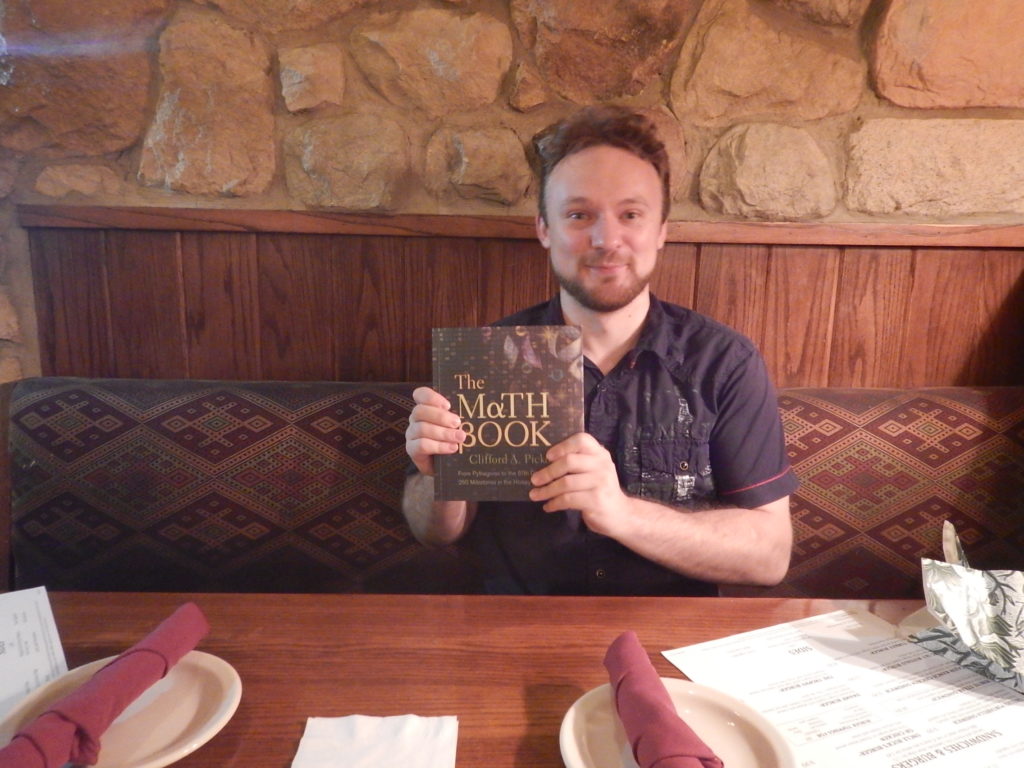
Mike, delighted with the top hundred mathematics discoveries book I gave him for his birthday in 2015.
Mike The Inventor
To understand Mike’s cleverness, you should see his work on a project called “Duckify” — software named after “duck face” which describes the overly-posed expressions people can make when photographs are taken, or when they make selfies. Working collaboratively with one of his friends, they developed software which performs rapid 3D modelling in real-time, taking any picture and mapping it directly on one’s own face with three dimensonal surfacing to conform a photo to your own features, and then connect the photo’s features with your own for real-time animation. One could take a photograph of the Mona Lisa, for instance, or the president, and then using your webcam it would map the image onto your own face while you talked or made expressions.
Video that Mike created for Duckify, where he demonstrates the technology on his
own face, superimposing the faces of: the Mona Lisa, an Ape, Marilyn Manson, etc.
Naturally, you may recognize that Snapchat’s filters do this in large part. Using your phone and the Snapchat app, you can get all sorts of crazy dynamic masks imposed over your own face. (I think there is some indication that part of this technology may have been originally developed by Mike and his circle of acquaintances, but I digress.) Mike’s Duckify technology wasn’t a rip-off of Snapchat’s however — the math in the background of this is extraordinary and interesting, since it performs processing very rapidly using a number of mathematical formulae — the software is self-training, so you can provide a number of sample images to it of the front and sides of your face from multiple angles (again, in real-time — it captures these while you just rotate your head in front of your webcam), and then it takes whatever photo you provide and rapidly maps it over your own face. The speed of this is phenomenal — this can be done in realtime while you’re talking on a video call, or while you’re shooting a video of yourself for YouTube. He also had mastered the ability for two people to swap faces dynamically while on screen simultaneously. Another innovation was that he had the ability to actually impose expressions on your face for you — he could force you to be smiling in video, or frowning, or many other expression types.
If you’re not impressed with this, you should be. I’m a fair programmer with a few patents on work I helped create at Verizon, but this is some work that would have been beyond my skills.
He loaded the pieces of the Duckify application on my laptop, and I’d played with the idea of creating and monetizing some websites around it with him, but I had never gotten around to it, sadly. I’d hoped to set up one site where anyone could come and create videos using the faces of the different presidential candidates during the presidential election of the past year — imagine being able to easily make a video where you can put on the presidential candidate’s face and say whatever you want! Scary, too, isn’t it?
I’ve neglected to mention his incredible sense of humor so far! If you watch his Duckify demo video that I embedded above, you start to get an impression of it. The guy was super-playful, silly even, and he loved pulling jokes and trading humorous videos. His laughter was so infectious! His humor never seemed unkind — he had the ability to disarm you, and break you out of impassivity to join him in laughing.
Mike achieved at least a little public accolades for some of his design work. At least once (I seem to recall he’d done this twice), he won an honorable mention for a design he and a partner had submitted to the famous Red Dot Design Award competition. His design (created in collaboration with Dmitriy Dlyasin) was a “Link Playground” that was a minimalist workout equipment facility that provided one with multiple bodyweight workout options in the form of a single, continuous metal bar that squiggles its way through the air like a casual doodle sketch that has leaped off a piece of paper to become 3-D reality. Here’s a rendering of the concept:
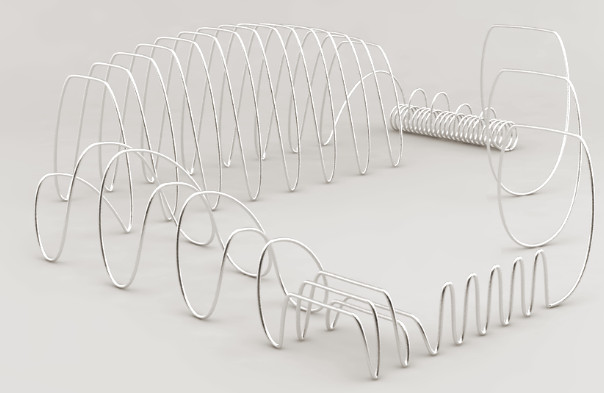
Link Playground, an honorable mention in the annual Red Dot Design Award competition for 2015/2016, designed by Mike Apyshkov and Dmitriy Dlyasin
The Red Dot Award Winners are printed up yearly in a huge, slick book that many would give their eye-teeth to be represented within. Mike treasured his copy and left it with me for safe-keeping until he might return for it. If Mike had lived longer, I would bet money that he could have ultimately won top honors in the competition.
Mike was innately a competitor. If I did nearly anything, he wanted to learn it and beat me. I think perhaps the only physical activity that I could do and that he could not was juggling — he had never learned it, and the practice required made it less attractive to him. But, he bested me at playing chess — which very slightly stings my pride to admit, since I’ve long studied and worked professional at strategy. I quickly recognized that he knew much better theory and practice than I do for that game — this is one area where the former soviet countries may continue to have an advantage, since they prize chess ability so highly, compared to here in Texas where I grew up and where football eclipses all else. I enjoyed a chess club in middle school, only, and we didn’t have that option in high school. I could easily beat him at playing Go (an ancient strategy board game that is a precursor to chess, but orders of magnitude more complex). But, my pride makes me defer in attempting to assess whether Mike beat me at most skills in life. He clearly was far more physically trained than I, but on intellectual competitive scores I grudgingly fear that he frequently outpaced me there as well.
One of the coolest things that Mike invented was the “Orbotron” — a object that was like a puzzle, or a small construction kit. When assembled, it was a small plastic sphere that can fit comfortably in one hand. The Orbotron was designed by Mike using 3D visualization software, and is composed of parts that have been sliced from a sphere along curves matching the same radius of the assembled sphere. Imagine a ball, and that some invisible balls of the very same size have intersected through the ball from six cardinal points, cutting spherical chunks out of it. It’s difficult to describe verbally, so check out the photos, below. For mathematicians and geometry afficionados, the shapes are built from six intersecting spheres that all slice through one another and touch precisely at one point in space that is the centerpoint of one other sphere.
Each of the sphere’s segments have a few tiny rare earth magnets, so that if one assembled the parts as the sphere, it all sticks together, snugly. When Mike first introduced the Orbotron to me at Vlad’s home, he gave me no clue as to what it was — merely handing me all these strange, curvilinear parts, and suggested that I put it together — he would not tell me what to expect that it would be when assembled. I began experimenting with putting the parts together, and then instinctively placed parts together that seemed to belong next to one another, resulting within a short time with the very appealing sphere — an “orb”. Mike remarked that of anyone that he’d introduced to the Orbotron, I had assembled it in a sphere the quickest.
But, the Orbotron has a lot more charm than merely being a puzzle that one assembles into a tight sphere. It can also be constructed in many various configurations to represent all sorts of other structures, including flowers, Chinese pagodas, the Star Trek Enterprise ship, caterpillars, and more. It’s hard to describe how addictive the Orbotrons are to touch — they’re elegant, compelling, and one simply wishes to own one the minute you see it. I knew immediately that it was a unique object — simultaneously a toy, a puzzle, and a piece of participatory tactile art. It was innovative, and clever.
I convinced Mike to manufacture a number of them for me to give away to friends and family for Christmas that year. There’s only a small number of these items in existence. Mike manufactured the Orbotrons using a FlashForge 3D printer which I believe he’d originally used to make prototypes of a product designed for a client. The 3D printer ejects materials from tiny nozzles in patterns over successive layers. Once completed, it was necessary to hand-polish the parts with sandpapers and cheesecloths to the desired smoothness, since the printer tended to leave “pixelated” surfaces to some degree. Mike would also use a small drill to smooth out the holes to the perfect tolerance, and then insert the rare earth magnets into all the required spots. So, the Orbotrons were fairly laborious to manufacture. The plan was to eventually have them mass-produced at some factory specialized in parts manufacture, and market them to the general public.
The Orbotron is perhaps the most iconic thing that Mike ever created, and it is very representative of his personality. He had set up an official Orbotron website, which is just a placeholder waiting for him to build it out further. I had supplied him with numerous photos of things I created using the Orbotron parts, and he was collecting those to make little catalogs of shapes for people to try to make if they received the puzzle kits.
Mike introduced me to a number of things like the Orbotron which I, in turn, introduced to other people. So, Mike’s impact on my life rippled out and affected others in numerous instances. I can only imagine how this dynamic must have affected many people he was acquainted with in Ukraine and Russia.

A slice of the Gâteau Mille Crêpe cake that Mike made for his father, Vlad’s, birthday, in 2016. Mike’s creativity knew no bounds.
How We Became Roommates
Last spring, Vlad had decided to move to France along with his wife, but he was concerned with leaving Mike behind. Mike needed to remain on American soil a while longer to complete the final steps of getting his United States citizenship, and out of practicality Vlad needed to rent out his house or sell it. Mike could pretty clearly have afforded an apartment, but I think that finding shortterm lease would have been tricky, and Vlad also seemed to want Mike to have access to someone if he needed anything. They have other perfectly great Russian friends in the Dallas area, but I think Vlad worried about being an imposition to others, and he knew that Mike and I had a lot of similarities of interests and personality and might more easily resonate. So, I invited Mike to live in my guest room for $200 per month with no real trepidation. From my perspective, the money was really just pro-forma, and I didn’t really care about it (the main cost he added was due to my concern with his comfort — he utterly hated the Texas heat, and so I decided beforehand to turn down my airconditioning to just below 70° F). In fact, I looked forward to having him for company, not least of all because he inspired me so much, and I benefit from having someone around more. From my perspective, it was a win-win arrangement.
I wonder in retrospect whether Mike was concerned about it being a positive experience, but the likelihood is that he did not. His exposure to me and my family, as well as dinners at my home and Vlad’s over time, had likely familiarized him with me, and I think he knew that he could trust me with anything. He would have mainly been satisfied that I had fiber-optic internet service, providing really slick bandwidth.
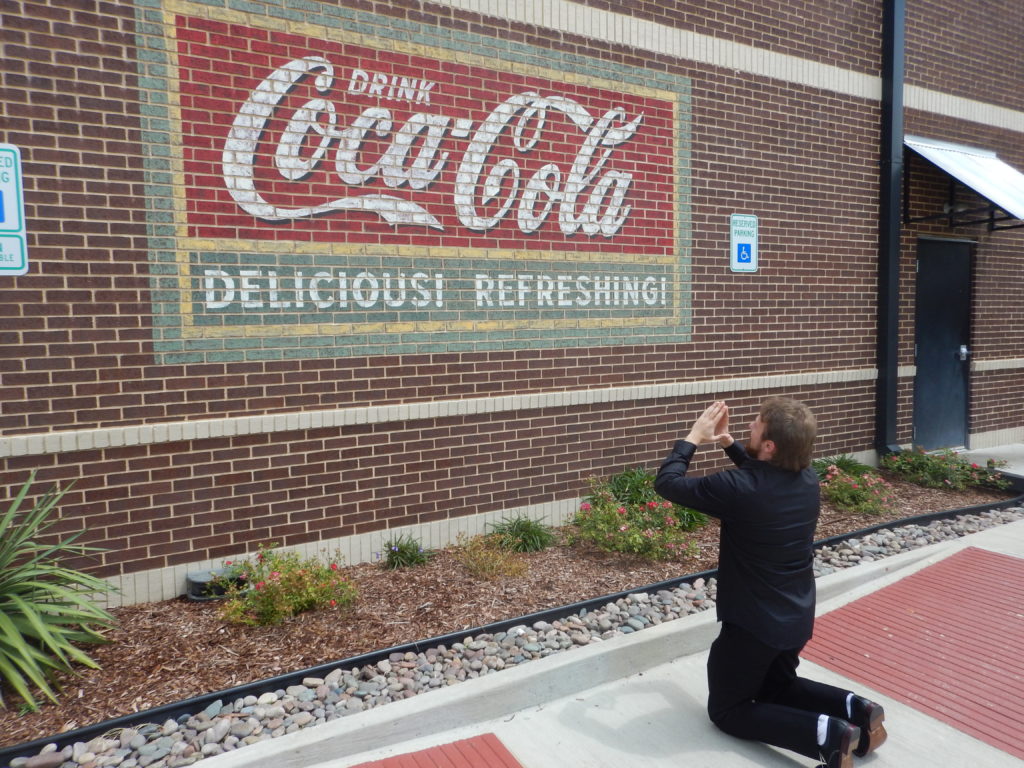
Mike, making a joke about his U.S. citizenship shortly after the ceremony, outside the 50s style diner where we had lunch. Would he now have to pray to the US god of crass comercialization?
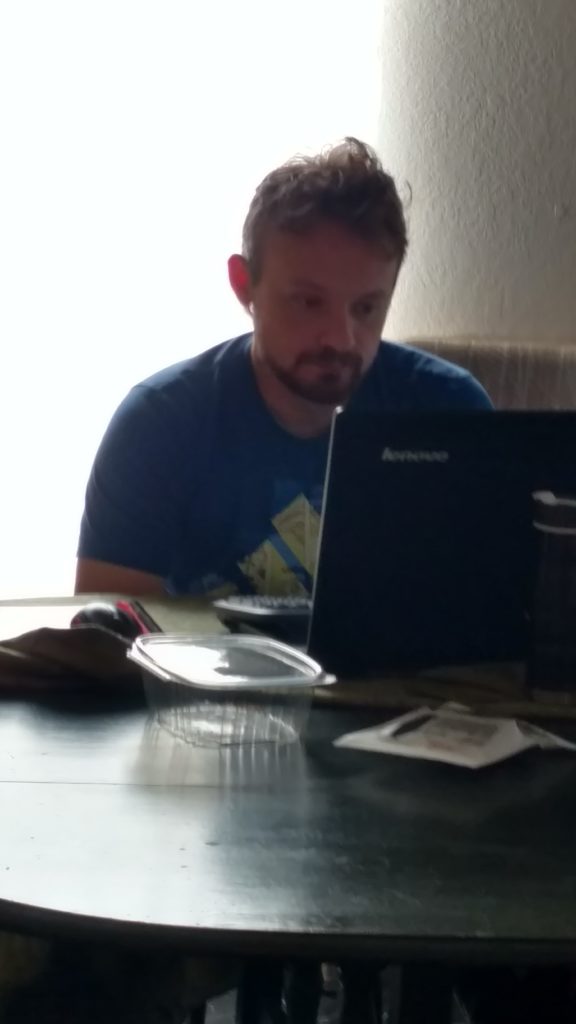
Mike, sleepy-headed, working from my dining room one morning. He’d probably kill me for making this photo public!
When Mike moved in, he installed gymnastics rings, hanging from one of the tree branches in my front yard — not something people are used to seeing in my little suburb of Dallas! He would use those for exercise, and sometimes after dark when no one would be as likely to see me, I’d do some chin-ups on them as well. I couldn’t do the “iron cross” gymnastics configuration, of course, but he could.
Funnily enough, the first first morning after he moved in, he woke me up by setting my fire alarm off! He’d taken a lengthy shower, and the steam when he opened the bathroom door went straight into the fire alarm — it was hilarious!
Having Mike as a roommate was fun, although sometimes it was like living with a ghost. He was operating mostly on the eastern European time zone, because of working on projects with his teammates back in Ukraine, and also because he had agreed to tutor a Ukrainian mathematics student via Skype video teleconference calls in preparation for the big competition. He also had gravitated towards being more active during the night because he never really adapted to Texas weather — he preferred much colder weather, and nighttime was at least a little cooler. He sometimes wanted to take very long walks for exercise and reflection, and nighttime is pretty much when he did it. So, our schedules didn’t always overlap.
Have you seen the TV series, Silicon Valley? I definitely felt a little bit like I was operating a startup business incubator out of my home like the character, Erlich Bachman. Both of us were heads-down into our computers during our respective business days, and we chatted lightly around that. I could sometimes lure him out of his computer for a few hours by some activity like dinner out, or a movie on TV. But, he mostly wanted to work on his projects (some of which were often fun, like when he was training his bots to play online multiplayer games on behalf of clients).
I could go a few days without seeing him. When he was holed up in his room, I mostly didn’t bother him. At other times, he might go out for a long walk or errand, or to go do some project at the Dallas Makerspace (a coop workshop facility). Mike didn’t drive — I believe he probably had gotten his driver’s license, but he really hated driving in Dallas. I think he probably didn’t grow up driving, and Dallas roadways are very aggressive. Mike preferred walking, riding the trains, or I drove him. Sometimes for short errands, I walked with him, and at other times I drove him to my suburb’s cool nature trails to walk with me there.
The ghost-like quality was also due to his intense politeness. He didn’t make a lot of noise — I could hear him at times on his video conference calls in his room, but other times he wore his headphones if he was listening to music. He was reading a lot while living with me, too. His extreme level of politeness was not really necessary in my home, but I appreciated the respectfulness, and I took it also as an implied expression for a desire for his own privacy. The politeness extended towards him leaving very little signs of using things in my home — he mostly washed his own dishes and bought a lot of his own food. We both drink tea, but his type tends towards some of the more robust black tea varieties whereas I have gravitated more towards different green teas in recent years. So, he didn’t leave a lot of signs of his presence when he was around the house.
To be fair, I can be a bit of a ghost, too, in similar ways. I have a fairly active social life, so I wasn’t home at dinner many nights, and I traveled a lot for business, leaving him to fend for himself at times.
I enjoyed having Mike living with me. It broke me out of my ruts, and he inspired me. We played Chess, as I mentioned earlier, and I tried to teach him some of Go. We watched movies — each of us introduced the other to things we’d never seen before. A couple of times I felt I particularly amazed him. First, I took him to the Scarborough Renaissance Festival, which he’d never attended before — he’d never been to any Renaissance festival, period. (That was only a partial success, because the weather was extremely hot. He remarked that they didn’t really feel the need of Renaissance festivals in Europe because they lived right in the middle of history there already!) Second, I took him to see the Rocky Horror Picture Show, along with my longtime friend, Gavin. The Rocky Horror Picture Show is a cult film that is highly unique — it’s not at all a good movie, but devoted fans had evolved early in its history to act out the film live at the fronts of theatres as the film is being played, and they also make fun of the film and engage the audience to participate. Mike loved it, safe to say!
The Circumstances of Mike’s Death
For this next section, a warning for Mike’s relatives and close friends — I’m speaking very frankly below about the circumstances of Mike’s death as a means of catharsis for me. Some of this is conjecture, based upon what I know, and it’s not intended to be disrespectful nor hurtful. I’m exploring why he died to try to understand it myself, and to provide information to others who are unable to obtain closure because of not being able to know or understand what happened. If thinking or reading about Mike’s death and circumstances around it could be too painful for you, please skip past this to the last section of this article called “Farewell.”
The news websites in Ukraine reported that a young, 26 year-old man died by falling from the 29th floor of the Olympic business center, which is so-named because it is located adjacent to the huge Olympic National Sports Complex. Some of the reports stated that he jumped, and that law enforcement personnel were looking into the circumstances, although they also stated that the most likely reason for the death was suicide.
Three months or so ago, Mike had begun working for a European bitcoin company. He had been a little tired of running the development company and hopping from client to client. In actuality, he had gotten tired of doing all types of technical development, and he wanted to find a whole new path in life, perhaps finding work teaching and helping kids, which he enjoyed greatly, or something else. I think he was pretty burned-out.
I understood he was winding-down his involvement with Eikoncraft — but, I didn’t think to question what was going on with that. He’d hoped to obtain more passive income with his gaming bots that people hired to develop out their virtual-world video game characters — but, even that may have become progressively difficult and time-consuming to maintain — I’m not sure. So, I conjecture that he joined this company as something like “taking the easier path”, and that he intended for it to be only a temporary necessity. By all accounts, he was well-liked in the company, and they had apparently made him a team lead over some development. But, in retrospect, I should have really questioned him about this — after all, he’d told me he’d grown tired of programming and development with clients and he was winding-down his involvement with Eikoncraft, yet here he was joining up a digital business company where he would be doing development. I should have questioned him about this dichotomy.
Just a few weeks ago, Mike arranged a video conference call with me, and we talked for a while for the first time in some months. He said that the main reason for the call was to invite me to provide a proposal for some marketing consulting for the Bitcoin company, because they were planning to start a new project and associated website, and that SEO services were to be a part of the promotion of the website. I opted to think about the project and get back to him later, and then we moved on to chat about personal life things.
I’d asked how his relationship with his girlfriend was going. He seemed a little abashed about this, and just looked away from me and said that they had broken up. Obviously, it was a sensitive subject, but he also may have not wanted to look me in the eye because I had advised him a number of times to invest more time in the relationship, and from my perspective he had little to no valid reason for being unhappy in the relationship. It’s hard to know what may have happened privately between two people, but I’m 90% certain that the relationship may have split apart because he was very neglectful and this unmotivated/lackadaisical/laissez-faire attitude was repeatedly sending the message that he felt both tepid about it and fatalistic (fatalism in the cynical outlook that “all relationships will eventually fail anyway, so why try?” — a philosophy that I do not share). I think that the relationship would have continued if he’d done even the basics of maintaining it and conveying desire and interest, but he didn’t. I expressed sadness/sympathy to him, but did not criticize on the phone call when we last talked.
We next chatted about my recent trip to the rainforest of Costa Rica, and I showed him my photographs from there. He became more animated and enthusiastic while looking at those photos, and he said that he had been wanting to travel again soon, and Costa Rica might be a good choice. Back in the spring he’d talked about Thailand a lot, and he now said that either place would be good. He remarked that he wanted to leave Ukraine to travel once again, because he didn’t enjoy being around most Ukrainians and Russians.
A week or so later, I wrote Mike an email, regretfully declining the project with the Bitcoin company. My reasons behind that decision are private, but I can say that most of the reasons involve it being not a great fit for where I’m planning to focus for this year.
When Mike’s father, Vlad, contacted me a week ago to let me know he’d just learned that Mike had died, I initially went into shock. It was nothing short of a devastating blow. Just the fact of a young, vibrant and dynamic person dying in their twenties is so wrong to begin with that nothing further is needed to cause one to feel like they’ve been punched in the stomach. But, Vlad related that initial reports were that he had committed suicide, and this fact makes it so much worse, especially for me. I’ve felt like I haven’t had enough oxygen since then. All the air went out of the room.
If you know the 5 Psychological Stages of Grief, then you know that Denial is the first stage. I’m extremely familiar with the 5 Stages of Grief, because I’ve gone through them many times. I’ve unfortunately experienced having a number of friends and acquaintances that committed suicide over the course of my life, so sadly I have far too much experience to compare situations and commonalities. Even when familiar with the 5 Stages, one cannot avoid experiencing them anew, really, as upsetting as some of the steps are. Due to my repeated experiences, I felt myself go through all stages of grief in rapid flashes in the minutes after hearing of Mike, and then I returned back to the first stages to experience each one for a longer period again.
I first did not want to believe that Mike could have committed suicide, because I felt that I’d let him down. If he committed suicide, then I hadn’t accomplished successful guidance as one of his mentors. Oh, believe me, I fully recognize the objective truth that I am not responsible for his actions — but, it is quite hard to separate one’s instinctual emotional reactions to things like this if one is prone to caring for others. So, I felt the terrible force of not wanting to accept that it was suicide because that fact would then force me to feel that I failed someone that I cared for very much, and failed in the worst and most final ways possible.
If you want alternative possibilities, there were initially some very possible options, and I latched upon these in hopes that there might have been some other explanation aside from a bleak suicide. Privately, Mike had relayed some things to his father that could have suggested a very dark option: that Mike might have been murdered.
The circumstantial evidence for me around the theory that this was not suicide initially felt very strong:
- Mike had just days previous expressed to me that he intended to travel.
- Mike had just received his U.S. citizenship less than a year ago, after going to some efforts and sacrifices to obtain it.
- I suspect that most people have a large horror of falling from great heights, and Mike was expert at Chemistry since he’d been a child, so he easily could have obtained the means for poisoning himself, and thereby going out with less chances of mistakes and better certainty of experiencing no pain.
- The Olympiyskiy Business Center is a popular multi-use facility with people going into and out of it constantly. I did the calculations, just as Mike would have, and determined it would have taken him 4.41 seconds to hit the ground from the 29th floor. Possibly it could take up to 5 seconds, depending on wind conditions and air friction. Mike was always very considerate, and 5 seconds is just long enough to consider that someone might potentially walk beneath him and be injured by his fall. So, it’s slightly surprising that he would risk that happening.
- He left no indication that he was just about to take this fatal step.
- There is an additional reason to consider that it could have been murder, due to some personal information that those of us closest to him have about a conflict that he could have entered into. This is something I’ve chosen not to share publicly, because I cannot find any real evidence other than some hearsay. Even considering this, it’s an extremely low likelihood, and the evidence to the opposite is so convincing to me that it seems bad to list this.
- The top of the Olympic skyscraper has some degree of complexity to it, that could have been attractive to Mike for the purposes of Parkour or risky gymnastics. Mike always was using the structures around him for gymnastics expression, and it’s possible he could have spontaneously tried some move or some handstand and had an accident.
- Apparently, there was a little alcohol in his bloodstream, so that opens the door to some consideration of accident as well, despite the fact that he was at his workplace when he died, and I don’t believe he would have been drinking enough to cause a foolish accident.
- He had reportedly been talking with the people at work, and laughing or joking with a few of them just before going out onto the terrace from where he fell. It’s rarer for someone to commit suicide immediately after talking normally with others without giving some kind of indication.
However, once I had collected all the information that I could, it seems much more likely that Mike chose to jump off the Olympic business center tower, as upsetting as that image may be to contemplate:
- Mike had talked to me and others about suicide to some degree in the months or even years previous to this. This part is gut-wrenching to relate, because it can make all of us who knew him feel that we might have failed to some degree in persuading him from this course of action. While living with me, and to a far lesser degree before that, Mike had expressed to me a very nihilistic worldview — he tended to believe that when you die, that’s it, it’s all over, your consciousness fades to black, and there’s nothing more. Existence is over, there is no soul that lives on, no afterlife. Thus, based upon this knowledge, and the atheistic theory that our lives, consciousness and self-awareness are just an accident of atoms colliding in the universe, then there was no reason to exist. We had longer conversations about this while he lived with me, and I rebutted this worldview with my Christian-informed beliefs that we were created for a reason by a supreme being, God, and that our core identity, the soul, lives on in an afterlife. His background having grown up in a post-soviet country was not very open to these concepts, since religion was looked down upon by many of the intellectuals of the formerly Communist countries, and religions were even derided as being something that only mentally weak people need for the sake of comforting themselves and functioning in the world. Since my parents were simultaneously hardcore scientists and also Christians, I provided him with some apologetics in terms of arguing that science absolutely does not disprove the existence of God, the Bible, nor the human soul. I pointed out that Sir Roger Penrose, the preeminent physicist, has theorized that there appear to be quantum effects happening in the human brain, beyond mere chemical and electrical processes. For me, this is yet more evidence of the existence of a human spirit, separate from our physical bodies, and our brains are an interface for that spirit to operate on this earthly plane. I believe that Penrose’s scientific observation is attempting to describe the connection between the soul and the body. Quantum effects happening to enable human consciousness indicate that our minds exist in large part in quantum states, essentially operating across more than the three or four dimensions that we can perceive in everyday reality. It is an evidence that God exists. But, Mike was not very open to this theory. Rock-hard certainty is the domain of the unconsciously-hubris-filled youth, and this was one area that Mike had grown to think that no other possibilities could exist other than his limited worldview.
- While living with me, Mike was questioning his existence and meaning of life. To this end, he was reading the works of a number of notable philosophers. His views seemed to be shaped by existentialism, and I think he’d read works by Kierkegaard. I know for a fact that he was reading works by the philosopher, Friedrich Nietzsche, while living with me — and as you may know, Nietzsche was known as a proponent for nihilistic thoughts and frequently stated that “God is dead” throughout his writings. Mike had been somewhat taken by the concept of Nietzsche’s “Übermensch” or “overman”/”superman”, which is someone who has transcended concepts of traditional morality that are rooted in what Nietzsche considered to be “superstitious” beliefs in God and Christianity.
(Long Aside: I’ll take a moment right here to say that I highly respect intellectual thought in general, and I can appreciate the existentialist philosophers’ desires to release mankind from being controlled by detrimental, fraudulent superstitions. But, the objective fact is that Christianity also conveys considerable benefits — separate from humans’ attempts to manipulate one another through religious structures they create that are beyond what God conveyed to us. Some of the scientists of the Santa Fe Institute thinktank organization have objectively observed that religions have apparently conveyed survival benefits to human kind, as evidenced in part by the fact that the world’s top religions have survived for thousands of years at this point, and that they would not have if the organizations were not conveying benefits. Their objective scientific observation, devoid of some of the biased prejudice of hostile scientists, would seem to me to be another reason to believe that the inherent processes underpinning the universe which the Santa Fe scientists collect together under the concepts of “Complexity Theory”, are an effort to describe the existence of God and the effect of His will in the innate mechanisms at work in the universe. I conveyed some of this to Mike as well. So, the existentialists have done what is a dangerous thing in throwing the baby out with the bathwater so to speak, from my humble viewpoint. The evidence is that humans do a piss-poor job of directing their lives for the most part, without believing in a morality that transcends human morality, without believing in a transcendent raison d’être or “reason to live” that goes beyond mere human physical existence. On their own, humans can frequently devolve into egocentrism, which is not enough. They manage themselves into stealing, cheating on each other in relationships, and becoming addicted to substances that steal away their humanity and all that is noble about them. Oh, sure, some people may operate well with no beliefs beyond themselves, but there are reasons why countries that have extracted God from themselves more also have higher rates of alcoholism, higher degrees of corruption, and higher rates of many crimes.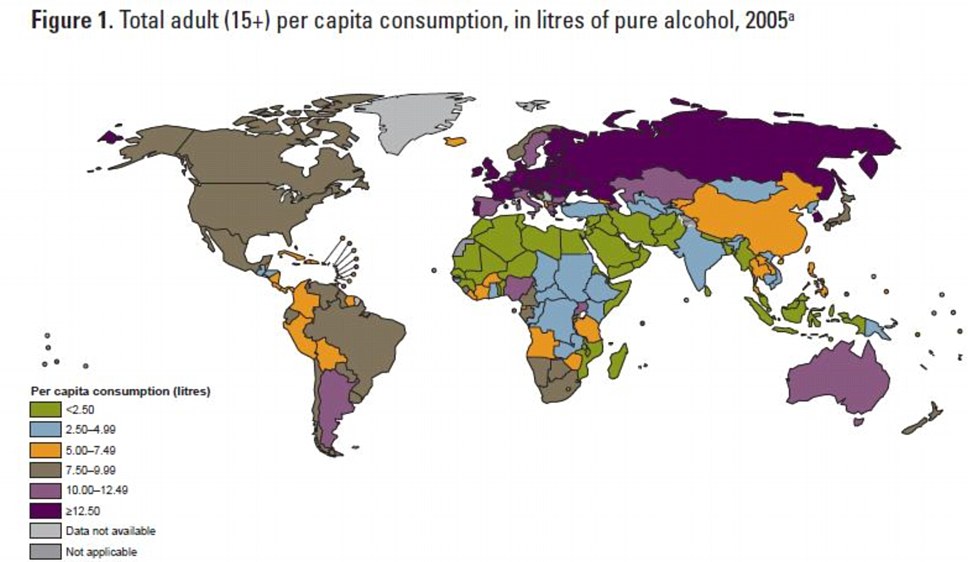
Map comparing levels of alcohol consumption by countries. Extremely high volumes of average consumption likely correlate with alcoholism. Europe and the countries of the Russian Federation show highest per capita levels of alcohol intake. (source)

Chart comparing companies according to relative levels of corruption in public offices. (source)
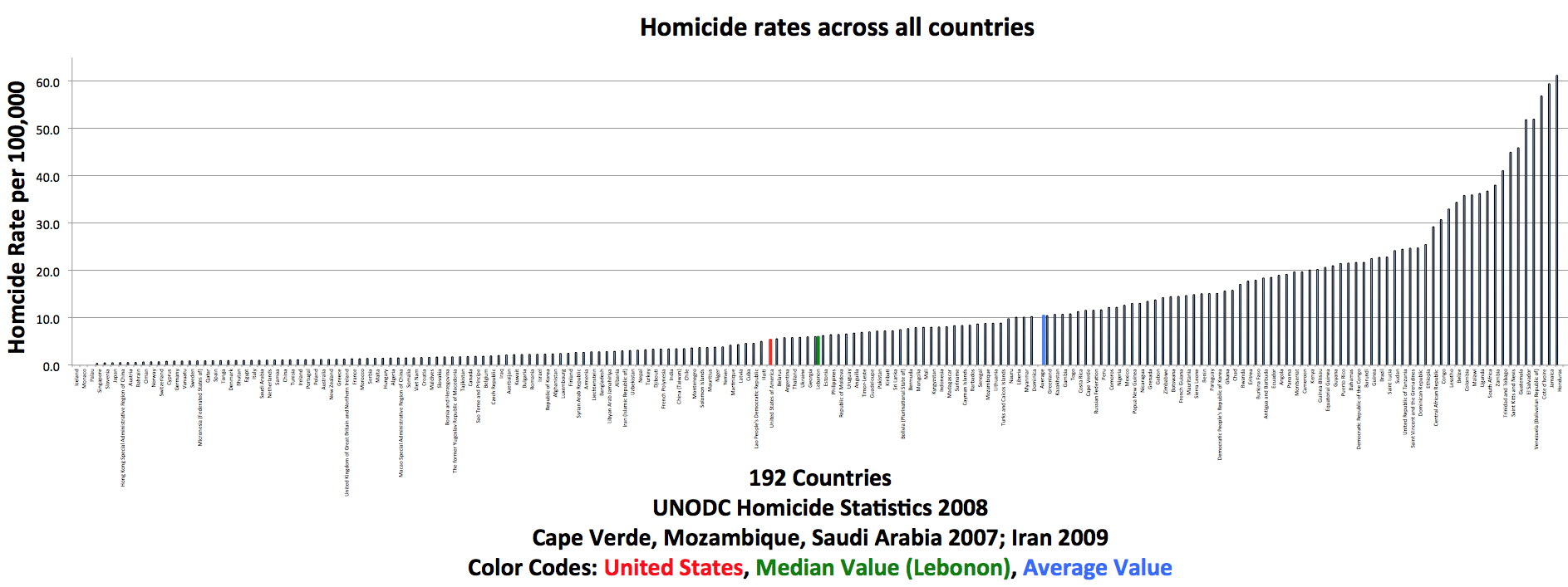
Chart comparing murder rates across countries. (source)
On the face of it, following the Christian ideals for life conveys huge degrees of advantages to individuals and societies. It’s obvious, for instance, if one doesn’t lie, steal, or commit murder, one is far less likely to go to prison for such things. Families where the parents are highly committed to both treating each other lovingly as the Bible encourages, and avoiding divorce as the Bible states is God’s desire, will be far less likely to traumatize their children and provide a healthier environment instead of splitting resources across multiple households as in the case of divorce. My point in this long tangental argument in favor of spiritual beliefs is that, just like the Santa Fe Institute’s scientists have observed, the leading religions’ traditions often convey some innate advantages when their practices are followed, even if one does not wholly believe them. It’s a cheap shot on my part, but if one compares with the way Nietzsche’s life spiraled downward at the end, one may conclude that his philosophy OFFERS NO HOPE WHATSOEVER TO HUMANKIND. Mike chose wrong, and I grieve that I was unable to convey the very real and intellectually sound reasons for considering there to be much more to Christian faith than what nihilism offers. But, you, the reader of this, still have the opportunity to explore the possibility that there is much more to life, and more veracity to Judaism and Christianity than you’ve perhaps been lead to believe, if you are an unbeliever. Consider that you may not really know what’s in the Bible if you have not read the whole thing.) So, you can see that Mike’s buying into the philosophies of Existentialism and Nihilism are a significant reason to believe that he could have considered suicide.
- You cannot read too much into this, but Mike’s favorite band and their music might have also influenced him some. Mike loved the music of System Of A Down, an Armenian/American heavy metal band known for darkly cynical songs critical of dehumanizing aspects of society. Now, this may be completely unrelated, and I’d be just about the last to associate moody dark music with suicidal tendencies, but the band’s most popular song was “Chop Suey”, which was originally to be called “Suicide”. One of the song’s writers stated that it’s about:
…how we are regarded differently depending on how we pass. Everyone deserves to die. Like, if I were now to die from drug abuse, they might say I deserved it because I abused dangerous drugs. Hence the line, ‘I cry when angels deserve to die’. The lyric passages ‘Father, into your hands I commend my spirit’ and ‘why have you forsaken me?’ are a reference to Jesus’ death on the cross, as, according to the Gospels, it was one of the seven things Jesus said while dying.
- One fan published the theory that the song was about someone who is contemplating suicide, but everyone around that person doesn’t understand why. This resonates an awful lot with Mike’s death. Could it have affected and influenced him? When he played System Of A Down music at my home, my interpretation was that he enjoyed it largely because he had fond memories of attending one or more of their concerts in Ukraine with friends, and the compellingly strong music was very catchy, and it speaks to anyone who despises the hypocrisies of the establishment society. So, I could be reading way too much into this, but the fact that he sort of put himself into the role of how the song has been interpreted could be apt.
- Mike’s actions to separate himself from the Eikoncraft company he cofounded, and to reduce that work down by attrition or otherwise, may very well have been part of his preparation for killing himself. As I said earlier, he was actually very considerate of others, and would not have wanted to cause others harm. I understand only a few employees are left of Eikoncraft. I think this was largely due to him deciding he didn’t want to do it any more, rather than due to a failure of the company.
- Mike’s decision to apply-for and accept a position with the Bitcoin company is quite odd in context of him not wanting to do development work any longer. Even though Bitcoin appears to have highly valued bringing him on as staff, working for an employer company could not have been all that more attractive than working for himself as the boss. There’s wiggle room in my assessment of this, because one thing Mike had grown to dislike was trying to manage employees and motivate them toward professionalism. But, in retrospect, I should have questioned him more about this move. I’m now left to wonder whether he agreed to work for this company in order to have frequent access to the Olympic skyscraper as he prepared and worked up the nerve to eventually jump off of it. It’s quite simply a very beautiful building, and the view from the top floors must be phenomenal.
- Prior to the suicide, Mike’s seeming ambivalence towards his girlfriend was something I could not understand very well. He had described to me how he’d first approached dating with high degrees of curiosity, and had learned how to behave in ways calculated to attract members of the opposite sex. He essentially described how he had to a certain degree coldly calculated what stimuli to apply in order to obtain desired effects of getting a woman, and that he had some regrets about his early love affairs because of the underlying falsehood of his expressions of interest eventually resulted in him hurting others’ feelings. I don’t believe he did that in his most recent longterm relationship, so I was mystified when he would tell me about not being happy about the relationship or somewhat resenting the time it took away from his professional projects. I thought at first there could be some level of Asperger syndrome going on, which is pretty common to people working in high technology fields. But, now in retrospect, I think it’s quite possible that he purposefully sabotaged the relationship because he was planning to kill himself. His inattentiveness and lack of intensity in pursuing what can only be described as a truly phenomenally wonderful woman was intended to ultimately be an act of kindness towards her when he eventually committed suicide.
- In a similar vein, Mike’s calling me just a couple of weeks prior to dying could also be interpreted as a desire to say goodbye one last time. I’ve unfortunately had the experience earlier in life when a good friend called me one week prior to committing suicide to chat some. People preparing to really go through with suicide may frequently make an effort to see or speak to each of the people they most care about prior to their final actions. I would not be surprised to hear that Mike may have contacted a number of friends and family in the days leading up to his departure.
- The details that remove most question of whether Mike committed suicide or not involve the security cameras at the Olympic business center facility. Vlad was quite irritated with the police in Kiev, who apparently had concluded it was suicide with practically no investigation whatsoever. In this city that has only about an 8% solve rate for crimes, the police only wanted to rush to close the case and reduce complications by declaring it a suicide. Vlad’s pestering of them finally stung them into going back and getting copies of the security cam footage to see if there could be any other explanation. Vlad and his wife also carefully reviewed the footage, and I’m sorry to say that Mike walked alone down the corridors to the terrace where he leaped off. There is no camera aimed outward at the terrace, and only one camera near the door showed a single shadow of a person pass by at that time. One of the employees apparently saw Mike jumping off, and the employee is seen on camera immediately dialing his phone for emergency services. The security camera’s videos would seem to eliminate most other possible explanations. Could there still have been someone lurking out there when he went out? Perhaps, but the security footage as far as I’m aware didn’t show anyone else coming in after the fall.
- If you cannot accept the horrifying specter of the beautiful, creative and sunny dispositioned Mike voluntarily killing himself, there is still wiggle room to believe that he could have accidentally gone off the top of the building. As I said, he loved Parkour and gymnastics. Imagine he had a drink or two with coworkers and that he went out, was loving the view, and decided to walk tightrope-fashion along the balustrade, and stumbled and fell off. Or, he did a handstand, and miscalculated. He had a large dose of the irrational belief in his own indestructibleness that young people have. His assessment of relative risk was much less than mine (older people, informed by a lifetime of experience, are generally less likely to do risky things). His practice of Parkour had also reduced his sense of risk and any fear of heights that he may have ever had. These theories of possible accident seem less likely than the possibility of suicide — he nearly would have had to push away voluntarily from the building in order to get far enough away from the stairstepped edges on the way down to hit the ground at the bottom — and, as I described, those of us that knew him knew he was considering suicide some during the preceding year — but, there’s still the narrow chance that this was some sort of freak accident.
So it is that I very regretfully conclude for myself that Mike committed suicide. I would love to believe otherwise. I am still highly grieved and heartbroken that he left us so very soon in life. I’d like to see him again, and learn about more new things he’s innovated and created! I’d like to hear him joke again, and laugh.
As part of my reaching of closure, I feel like my exploration of why he did what he did satisfies my bewilderment at what happened. I’m less anxiety-ridden at knowing that he chose to depart, even though I am still arguing in my mind with his ghost, trying to persuade him that life’s worth living, that relationships are the reason to live, and that his leaving costs too much for all of us that loved him.
Those that care about him or who don’t know him are horrified by his chosen method for departure. But, that’s largely due to the dread of falling from great heights that is instinctively wired in all humans from just about the age of one – something I’ve explained that he’d largely eliminated from himself through longtime practice of Parkour. I think it’s quite possible that he selected the tall building with the beautiful view for his final adventure here on earth. I think he wanted to experience the brief exhilaration of flying as he ended it all. I think that was one last experience he wanted for himself. As such, this part of his suicide does not cause me so much pain and horror as it otherwise would. I benefit from my familiarity with him in this respect — he literally went out on a high point, just as he chose, and he’d also mathematically calculated that it would be over in a rapid flash.
If you choose your own ideal way of dying, you may well choose something different than he did. But, his brilliance with science was such that if he wanted to die quietly in his sleep, he so easily could have.
For myself, exploring why he died as he did gives me some sense of closure. I was upset and anxiety-ridden with uncertainties when I was first thrust into knowing he’d died. I’m moving into my last stage of grief, Acceptance, although I’m still arguing in my mind with Mike’s ghost, trying to convince him to a broader interpretation of the universe and our existence in it, and the consideration that the suicide was not the definitive end that he thought it would be, but instead a phase-shift into a new plane of existence.
I’m grieved at him leaving so early, and I’m grieved at the pain I’m sharing with his family and friends. I’d like to persuade him that we’re worth sticking around for, that there’s still more to discover in life, and that living for decades longer can reveal yet more layers of meaningfulness in life.
Farewell
Mike, I’ll miss you very much. I’m heartbroken that I won’t hear any more jokes from you, or your infectious laughter. I’ll miss you irritating me by constantly asking me logic riddles. I was so inspired by you to challenge myself and to remember that creativity have been such important components of my personality. I was so challenged by your effortless-seeming mastery of physical training, matched up by your quest for quality in developing technology. I was shamed when you pointed out where my graphic designs or art fell short of excellence. I admired your skill at living in another country and another language.
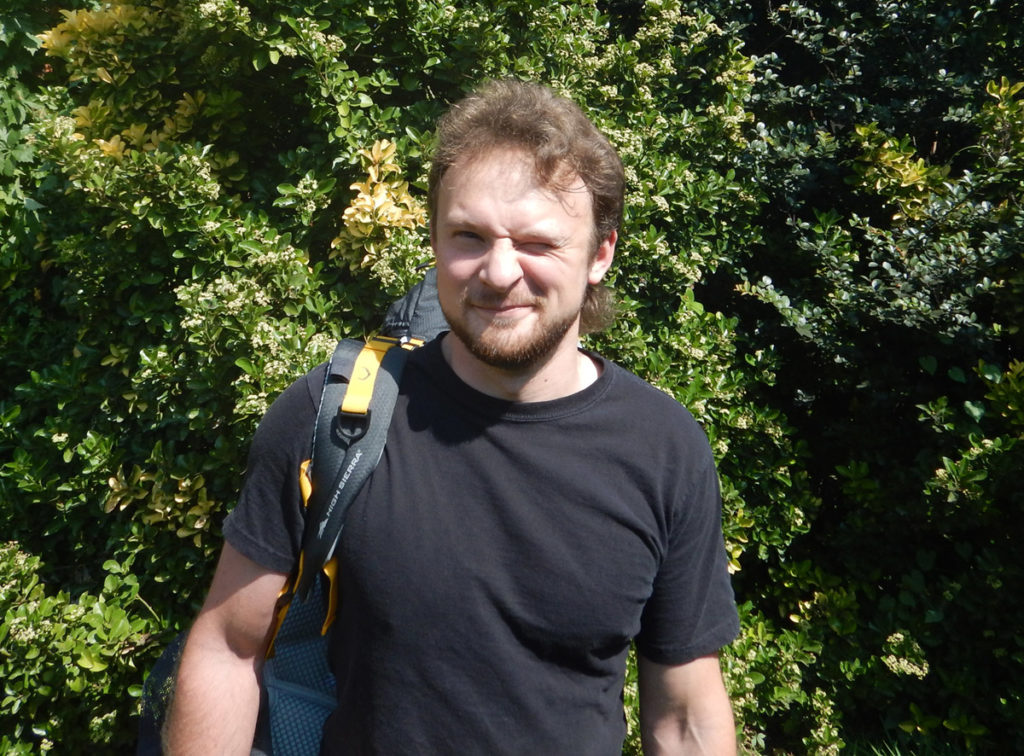
Mike, squinting in the Texas heat and sunlight, just before leaving the United States for the last time. Early summer, 2016.
I’m going to miss you leaping up into trees in my nature park, and your gymnastic moves when we exercised. I’m going to feel a pain each time I drink the teas you left here in my kitchen, and when I see the Orbotron you crafted for me.
The world feels so much smaller, knowing you’re not over there, jumping around the landscape of Ukraine and Russia. I’ll miss the chance of finding more examples of things you didn’t know that I could amaze you with. I’d love you to see some of the things I yet want to create in this life. I wish that I might have met your future wife and children you could have had.
I’ll miss you, Mike. I hope you are amazed at what you found after your fall, and I pray that our love for you will extend you a ticket into heaven and the afterlife that’s there.
POSTSCRIPT 2/19/2017:
Mike’s father, Vlad, has flown into Dallas to stay with me while he clears up Mike’s estate, goes through probate, and visits other friends as well. He’s also shared more information with me which has caused me to revise my opinion of the cause of Mike’s death some. I was writing based on early and incomplete information previously, and I truly hope I did not cause anyone any pain by publicly musing about Mike’s passing away.
Here’s what I now know:
- First, Mike told me that there was a theft at the company. It’s not at all clear who may have taken some of the company’s property, but Mike had told a few people that he was trying to look into it, as it was very conceivable that an employee within the company might have been involved in this. As such, there was a considerable motive for someone to have killed Mike if they felt they were at risk of being exposed.
- The fact that a theft had occurred at the same company makes it all the more irritating and unacceptable that Kiev’s police worked so industriously to NOT investigate Mike’s death under suspicious circumstances, and Kiev’s police worked intentionally to sweep Mike’s death under the carpet by closing the case as an accident or suicide. I avoided posting a lot of criticism of the police while the family was in Kiev and trying to deal with a difficult situation, but the authorities’ defacto refusal to do what they are supposed to do is mysterious and terrible. The police’s reticence to do their own jobs has made a bad situation even worse.
- Earlier, I also alluded to Mike’s work on the project, Duckify, with one of his friends as being a kind of precursor to the interactivity in Snapchat. But, let me be more frank: Mike worked collaboratively with another developer and friend on this technology that could add 3D masks to one’s face in video in real-time, and they developed a number of interesting twists on that technology. Mike’s friend basically took all of this technology to Snapchat, representing it as only his own original work, and gave Mike no credit nor compensation for his teamwork. Mike’s friend is apparently an employee of Snap Inc., which is currently poised to go public in an IPO that’s estimated in value to be over $19 billion. (Note: I’m by no means a conspiracy theorist at all, and I frequent serve as an expert witness in online technology court cases, and I am choosing my words here to be as accurate as I can be, based on a large amount of direct knowledge based upon intellectual property work that Mike showed me while developing Duckify.) So, considering the sky-high valuations that are being discussed involving Snapchat, it’s not at all out of the question that someone could have had a vested interest in eliminating Mike, since he definitely has a potential claim on compensation from that company due to his involvement. I’m not necessarily blaming Snap Inc. for this, because I believe Mike’s friend likely kept Mike’s involvement in the IP a secret. All the same, Mike’s potential claim would pose a potential motive for foul play.
- There’s a possibility that Mike was not alone on the terrace. It’s difficult to prove a negative, and just because he might have walked down the hallway alone just prior does not mean there could not have been someone already outside when he emerged. Also, the video would not have shown the shadow of a shorter person going out the same area, if someone was walking with Mike. I don’t have any reason to think that anyone could have gotten through the building’s security or anything – the main point is that the police did not seem to work to eliminate the admittedly narrow possibility that anyone else could have been there.
- There’s a possibility that Mike’s fall could have been an accident. I understand that he may have enjoyed standing on a very small ledge to look out over the city when he took breaks, and there could have been some ice up there when he went out that day. So, there’s a good chance that it could have been an accident.
- Considering how visible the tower is from many vantage points throughout the city, one seriously wonders if another security cam somewhere in the city might not have captured the building the moment that Mike fell off of the tower. If such video footage could be located, it might answer many questions that his death has raised.
- Mike had begun dating another woman that he wished to impress — something I was unaware of. This is a significant piece of evidence that his death was far less likely to have been a suicide.
- Mike had told Vlad he had taken the Bitcoin company job as a temporary thing, and intended to quit after a few weeks. However, he enjoyed the work and it’s clear they valued him, so he stayed on for months longer, and even reached out to see if I would work on a project for the company. Mike’s income from his game-playing bots would have allowed him to live comfortably in Ukraine without working on other programming jobs, so the fact he stayed on longer with this company is a testament that he was enjoying it and intended to be there longer.
- I related earlier that Mike intended to travel soon — this still seems very significant. Mike had discussed traveling with me while living with me, and was particularly enthusiastic about the prospect when I spoke with him on video call just a few weeks prior to his death.
- Finally, Vlad has endeavored to make sure that Mike’s remaining employees and partners all receive money due to them, because Vlad feels that Mike always held paying people on time at a very high priority level. This is exactly in-line with things Mike had expressed to me many times. The fact that there are a number of payments that were remaining due when Mike died, and the fact that money was all waiting in his accounts for these business expenses, is also a very strong evidence that Mike did not intend to disappear from the scene when he did. He was virtually adamant in his goals of paying people on time. As a roommate with me, he always paid me on-time for the living expenses, too. It would have been completely out of character for him to have left without trying to make sure that all of his friends and partners were given everything that was currently due to them.
My updated assessment is that Mike very likely did not commit suicide, but that he could have been the victim of homicide, or it could have been an accident. While he had been mulling over nihilist philosophies as I described, and he had a somewhat fatalistic outlook in some ways (my experience from many years of working with Russian engineers at Verizon is that this is not uncommon among eastern Europeans), the combination of information is strongly in favor of a conclusion that it was not suicide.
POSTSCRIPT 3/19/2017: Some names have been redacted at the request of parties for the sake of personal privacy, and I have voluntarily chosen to make these changes. These changes are made because Mike would want people’s privacy requests to be honored, and because I am a professional in online reputation management, and I understand how things ranking in search results can negatively impact people.
Tags: 5 stages of grief, coming to terms with deaths, entreprenuers, memorials, online memorials, orbotron, suicides, tributes
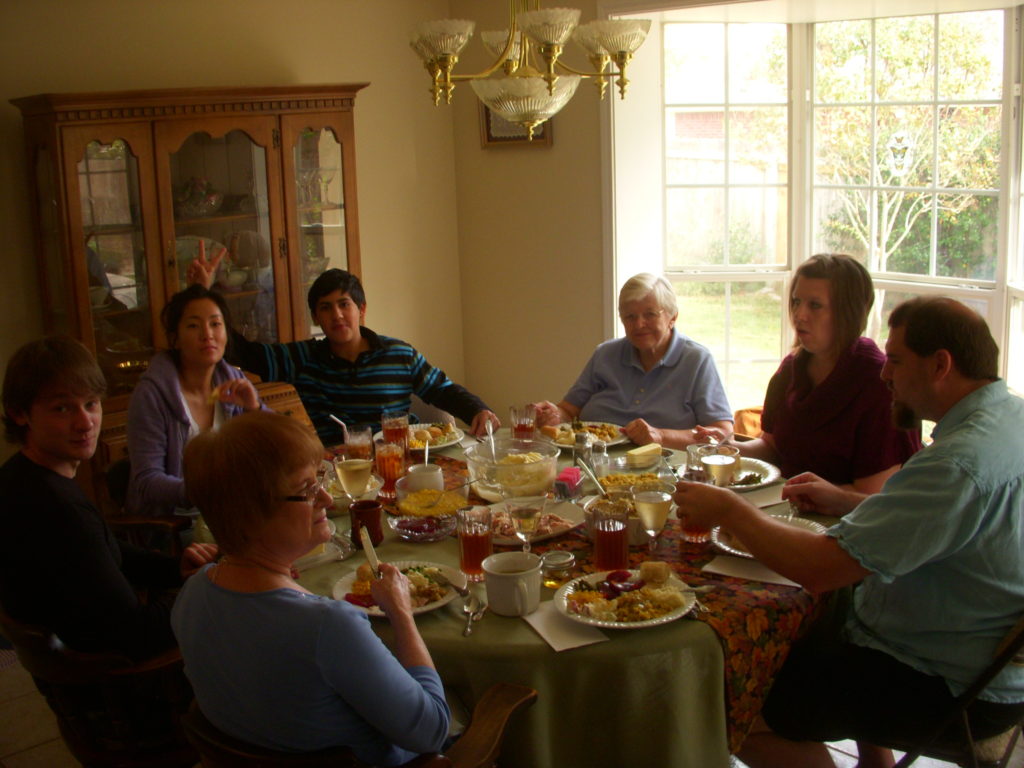
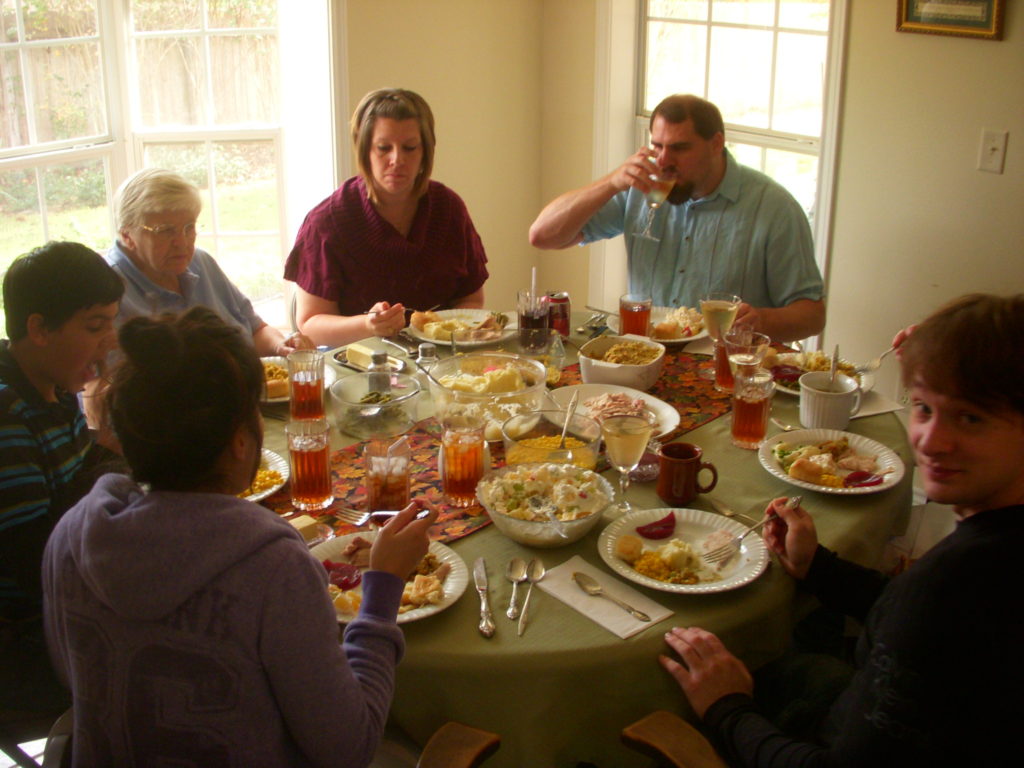
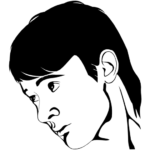
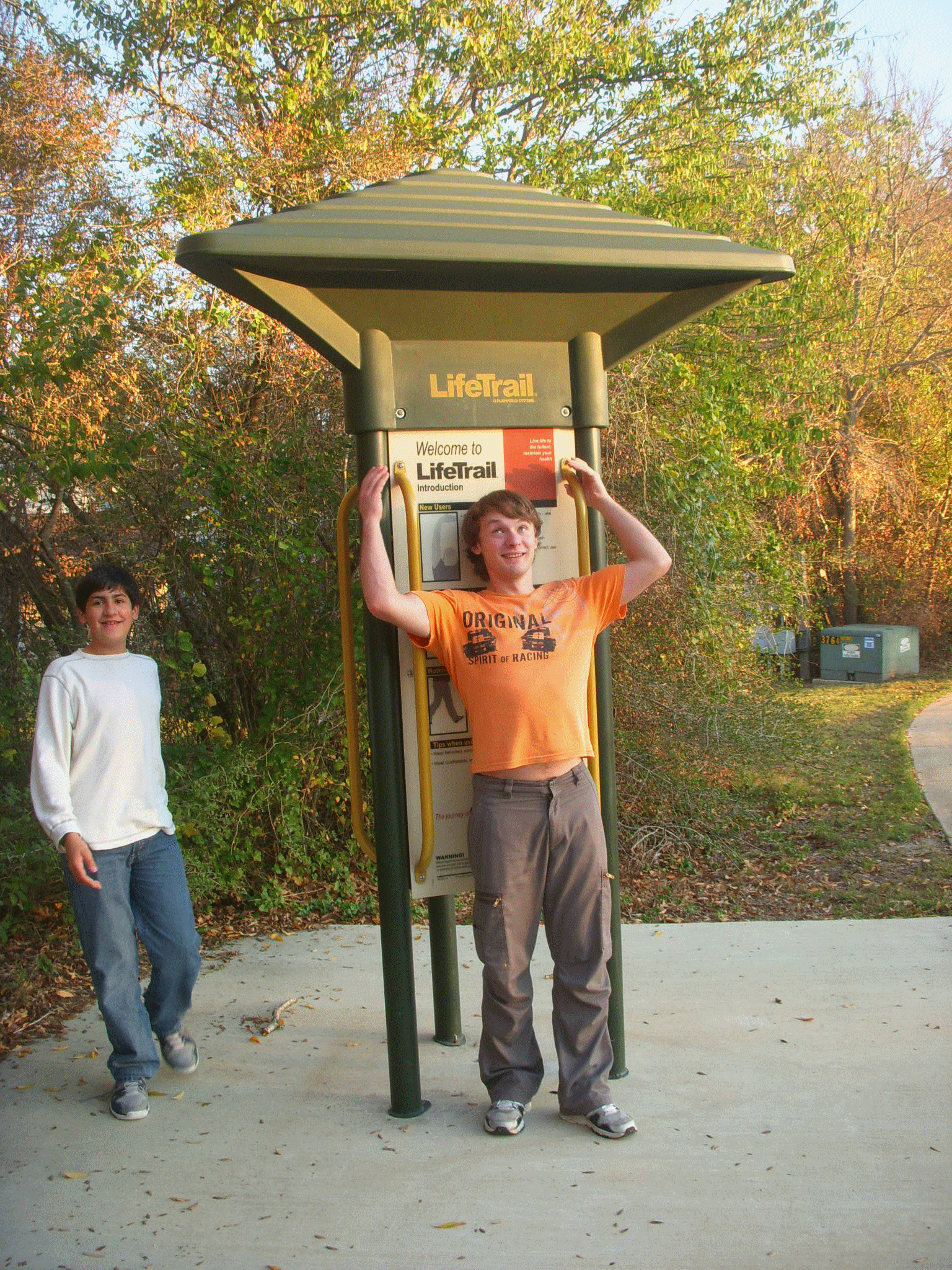
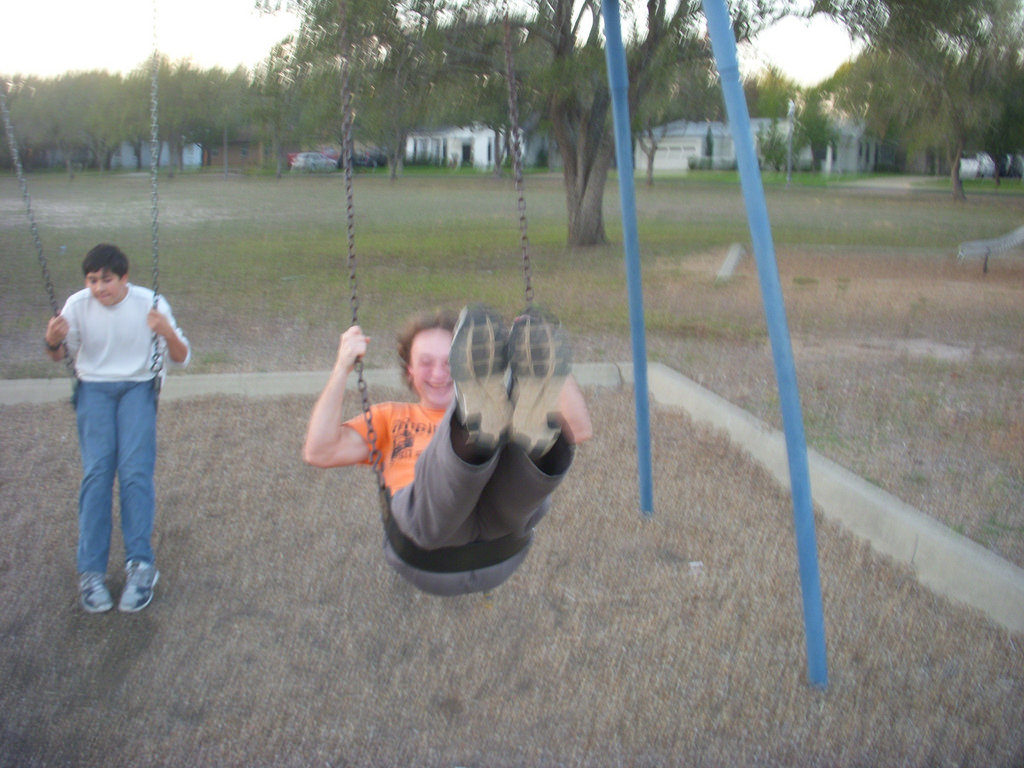
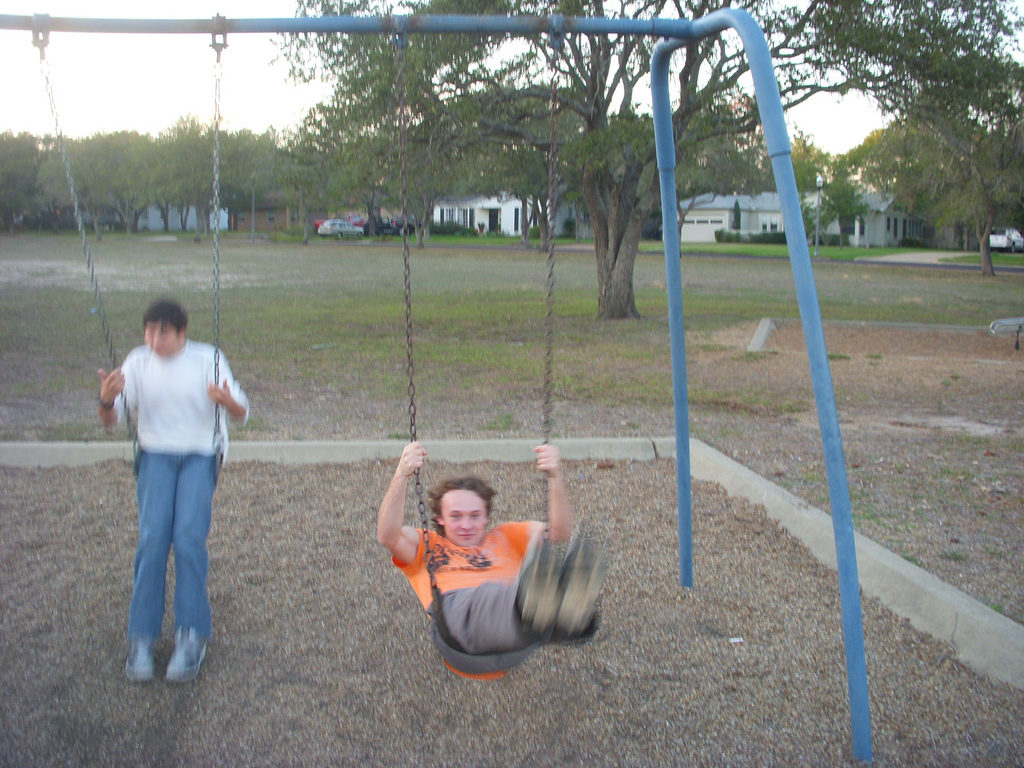
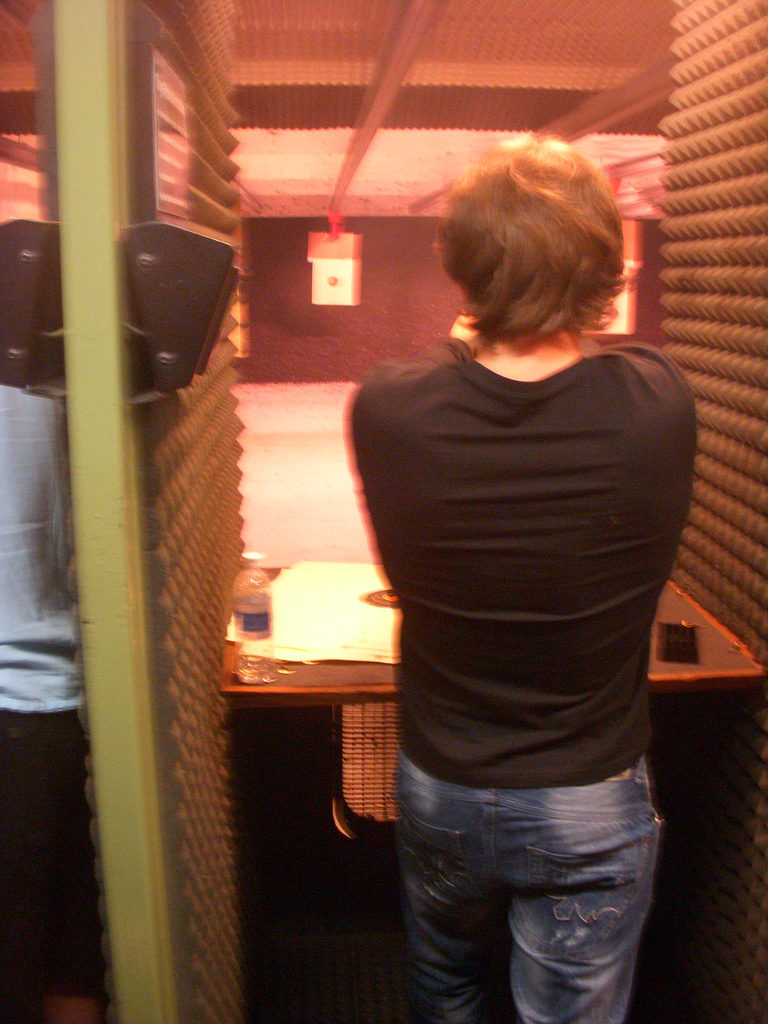
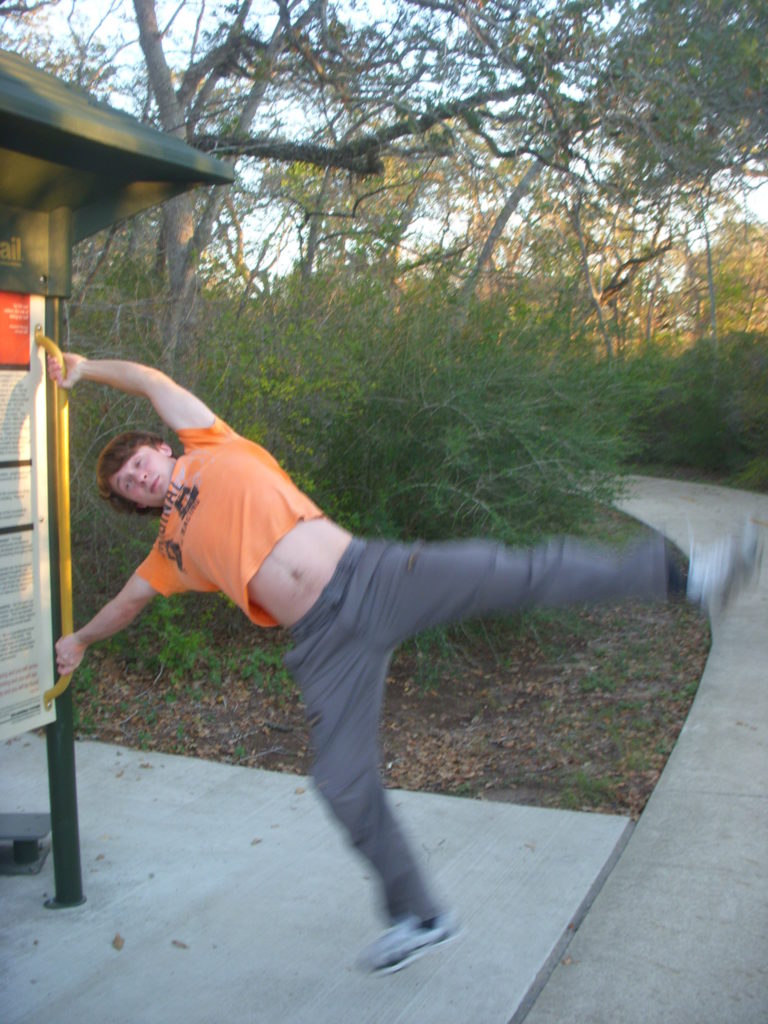
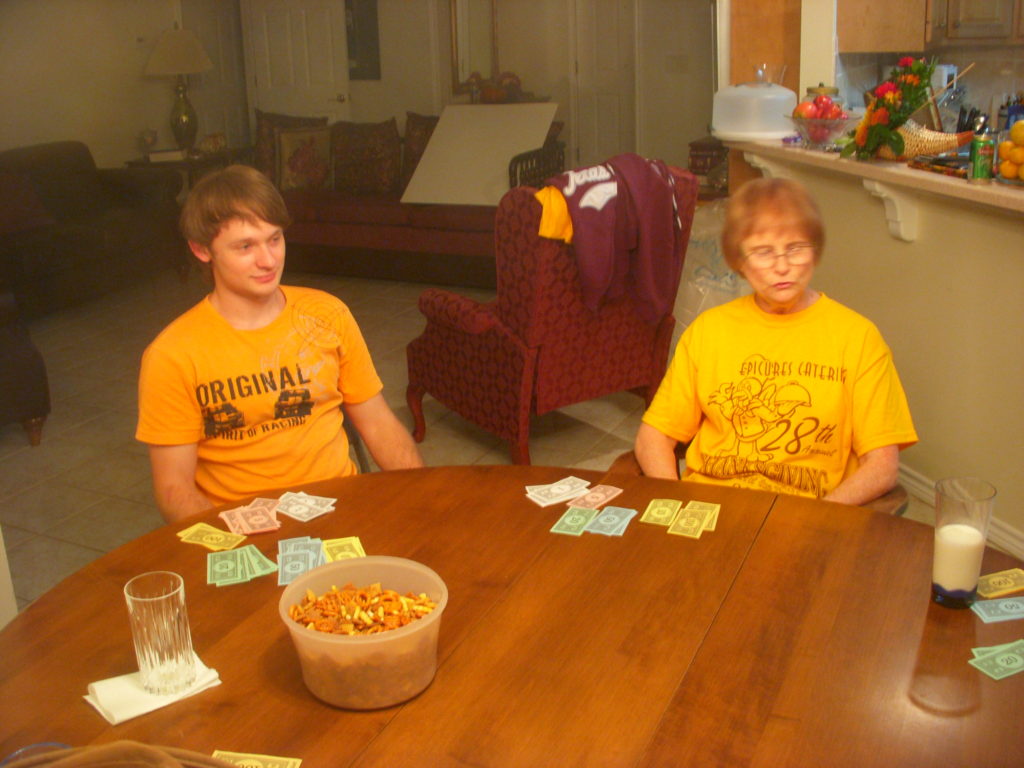
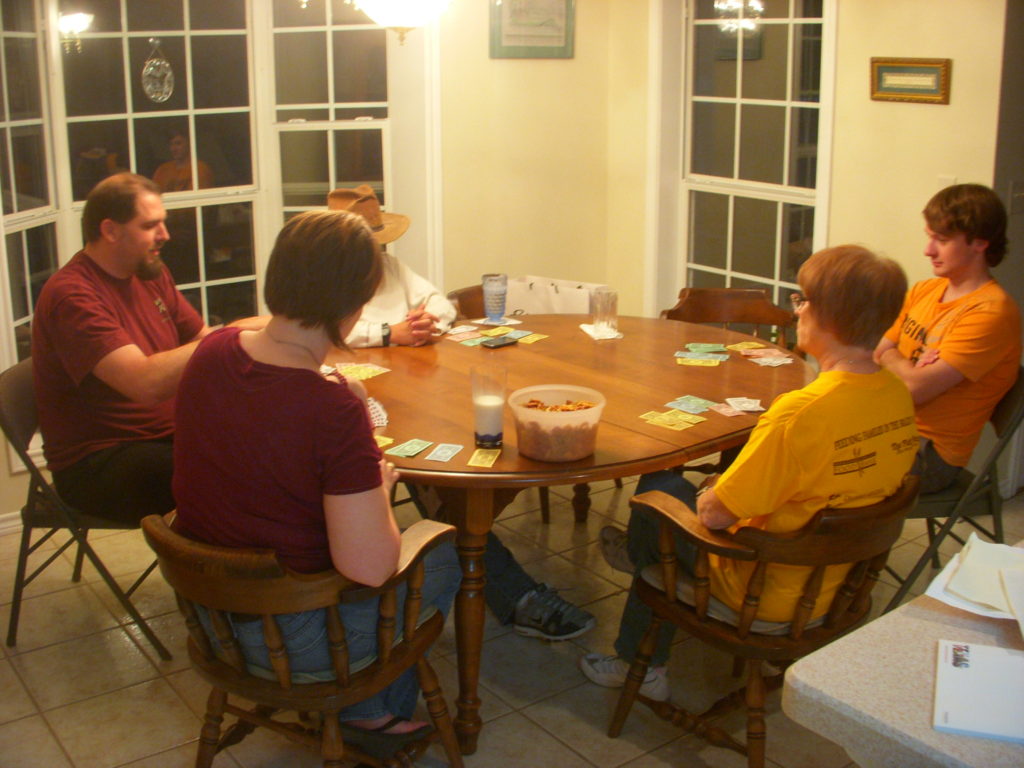
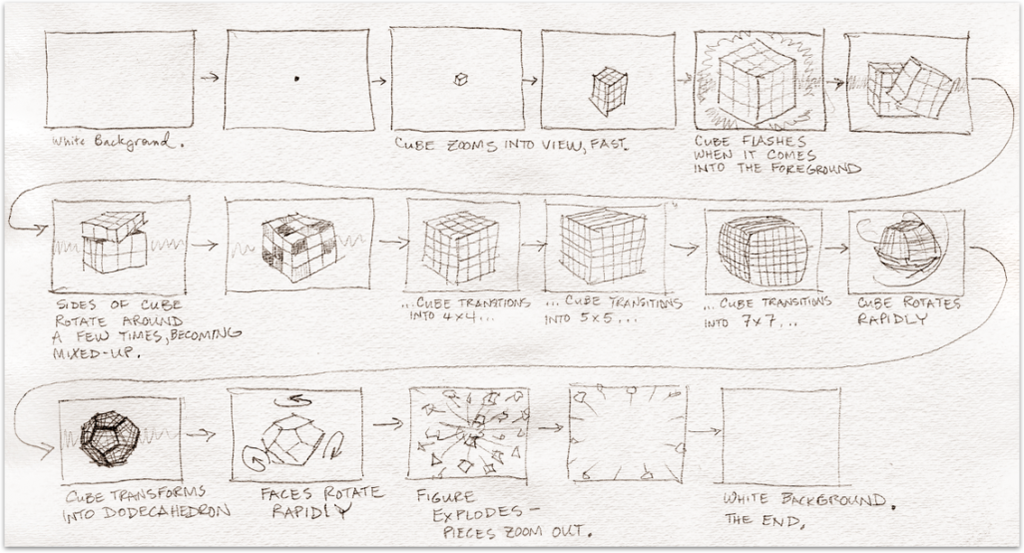

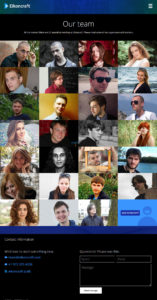
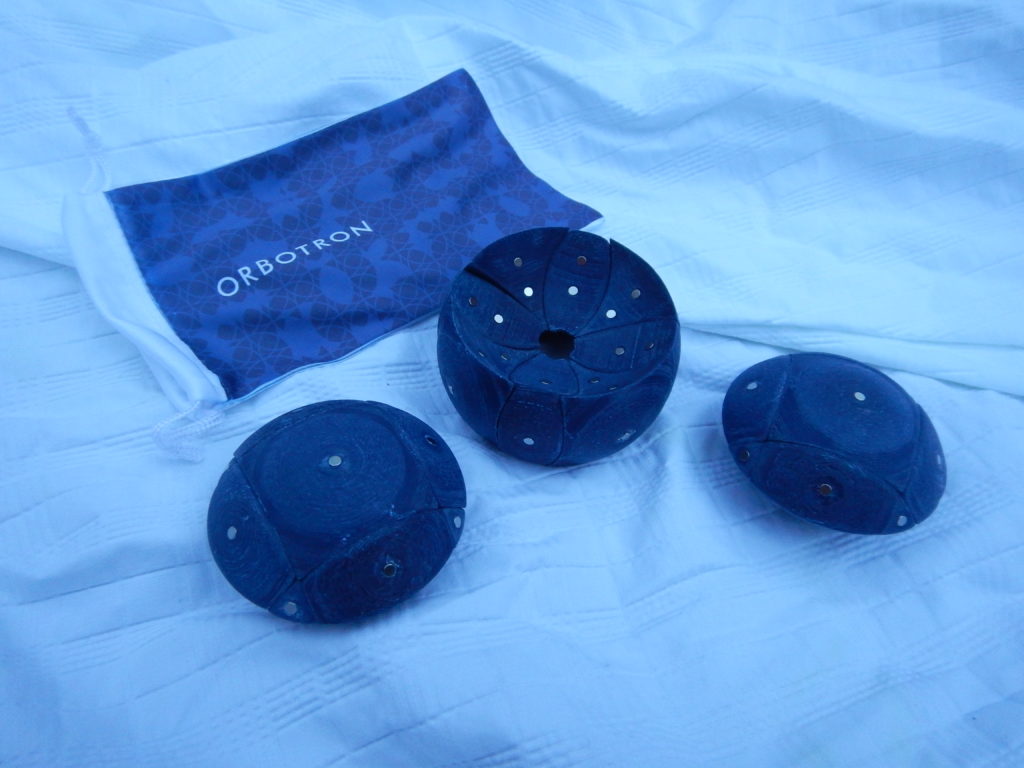
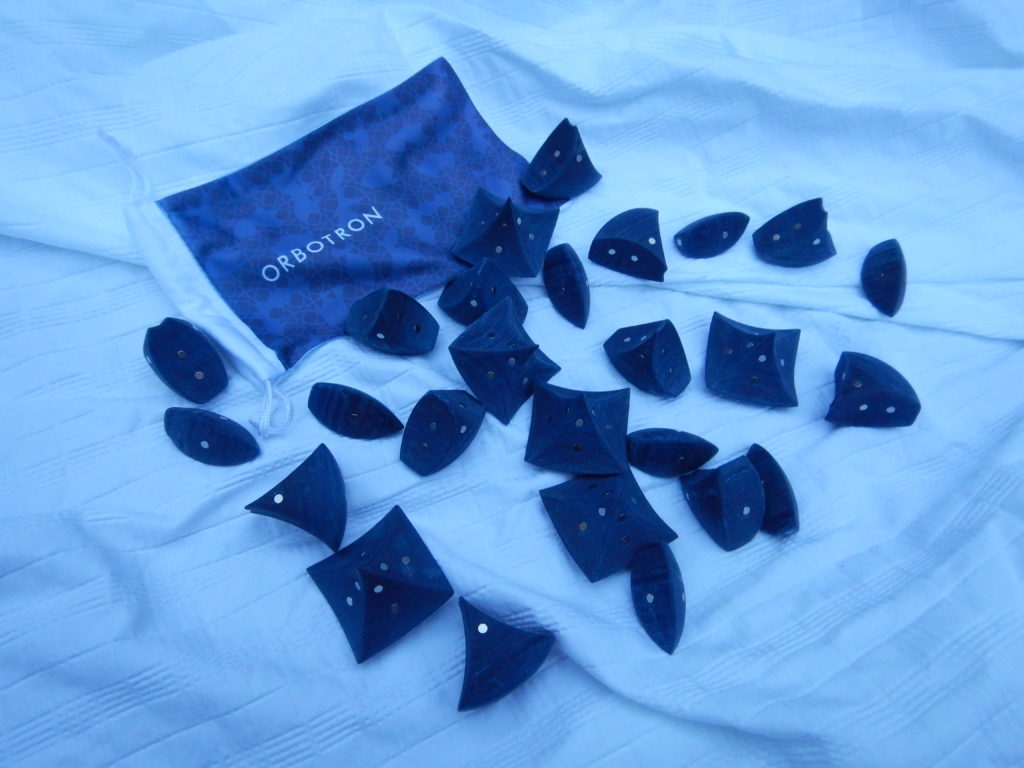
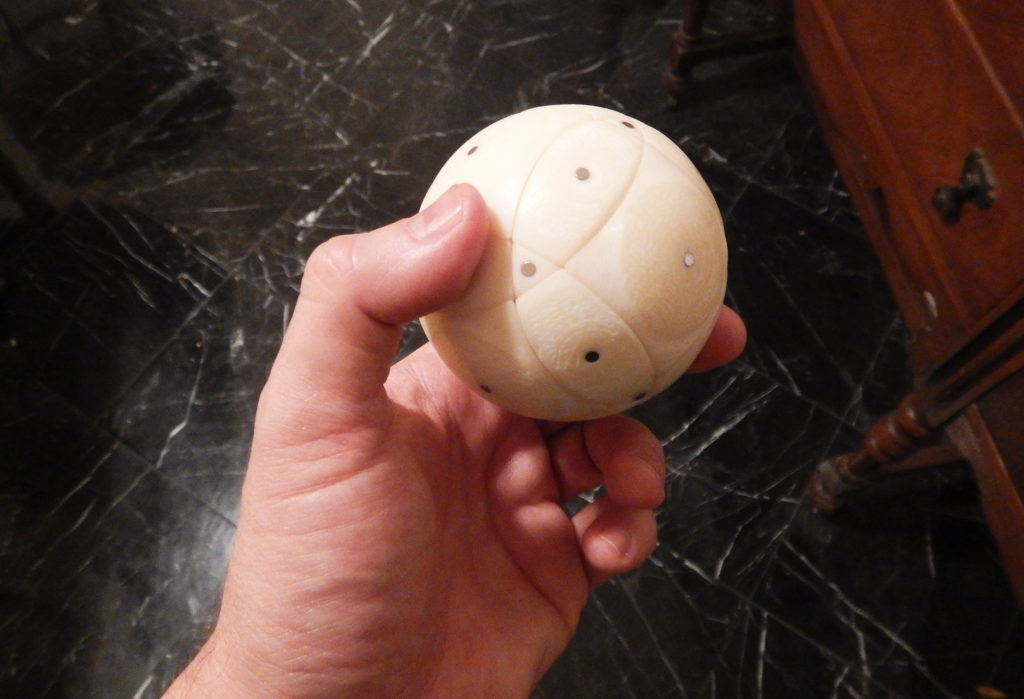
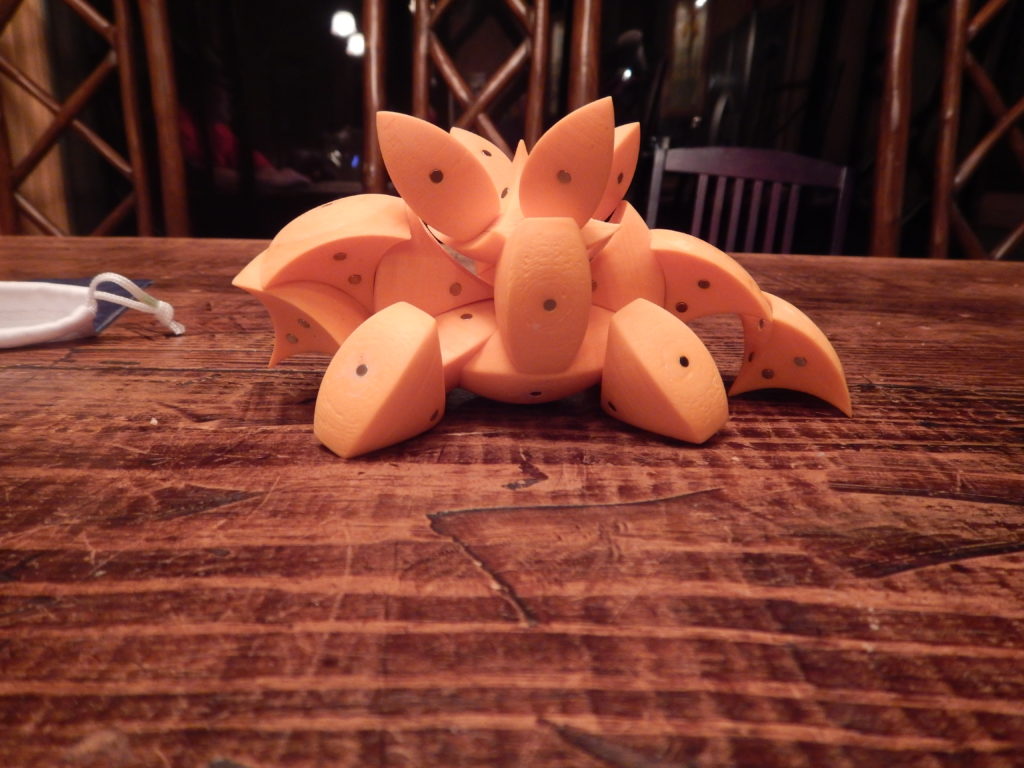
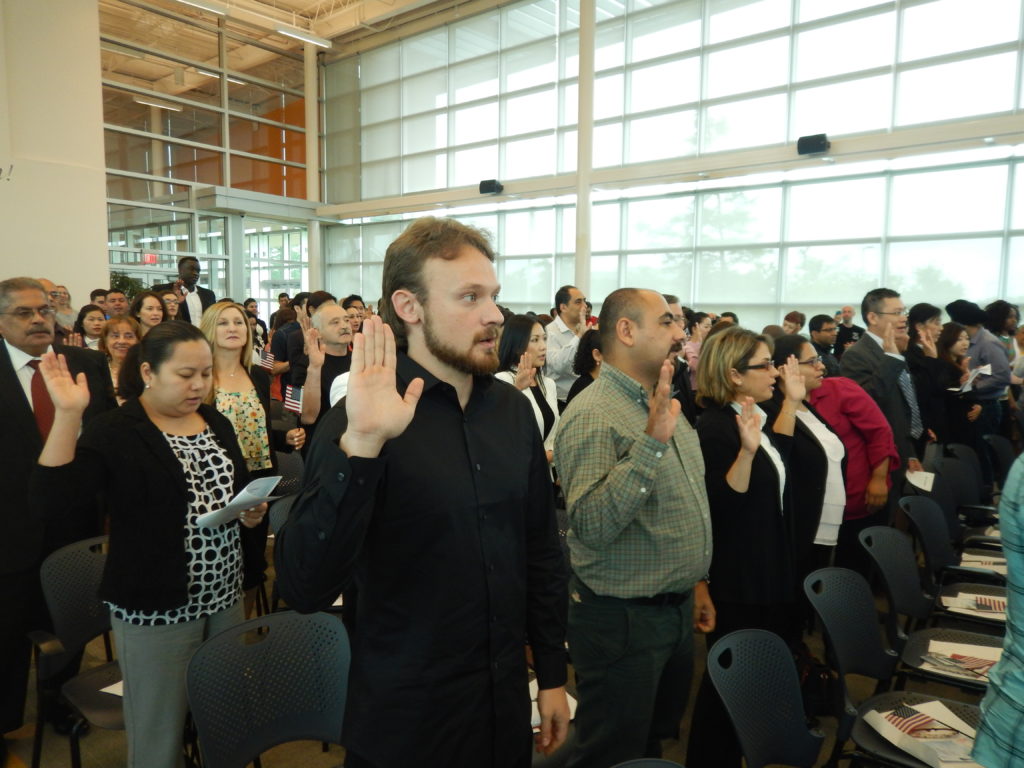
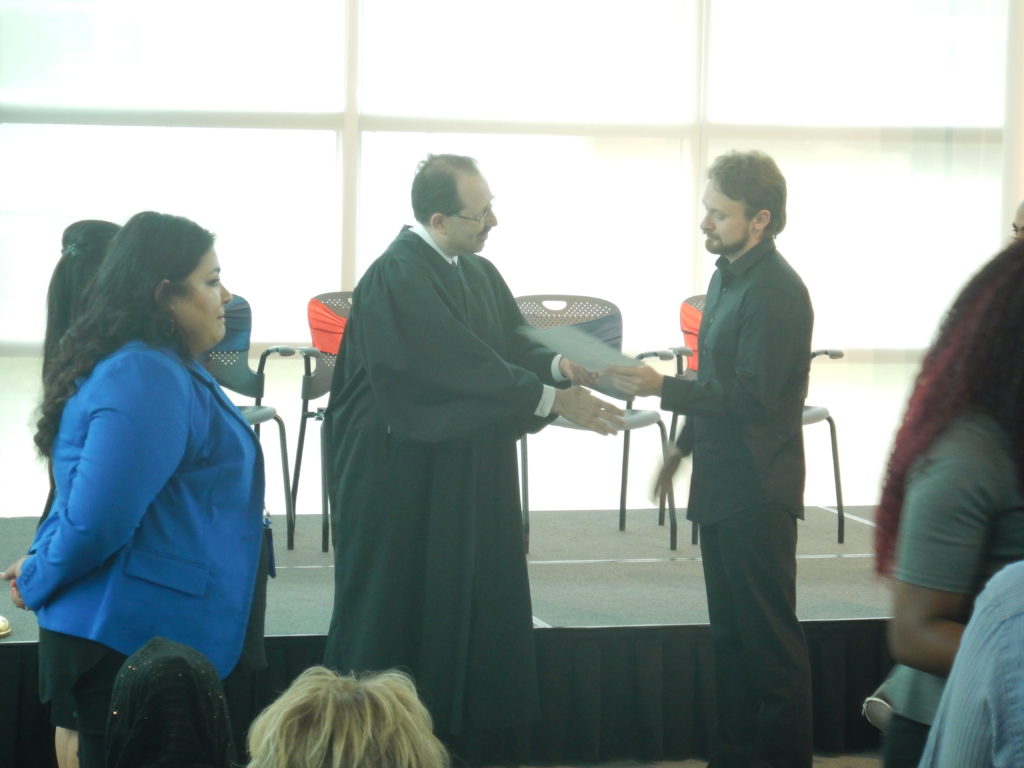
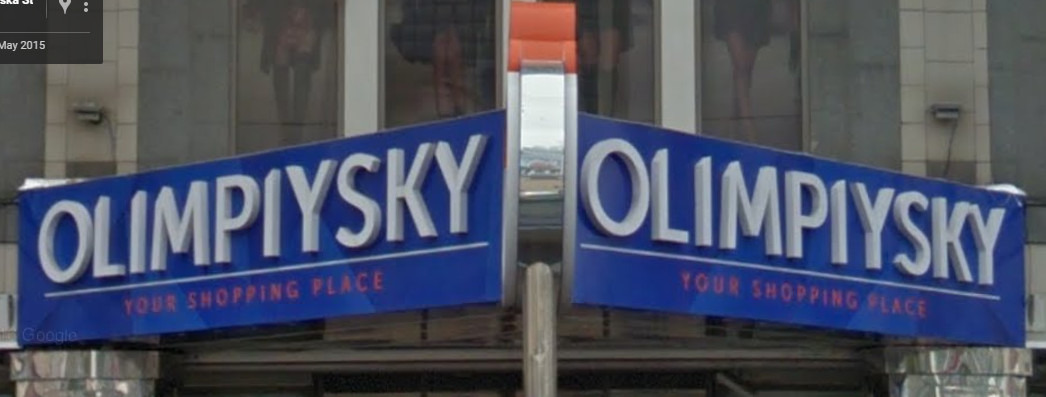
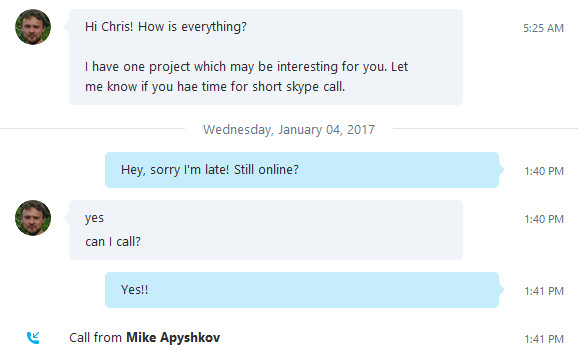

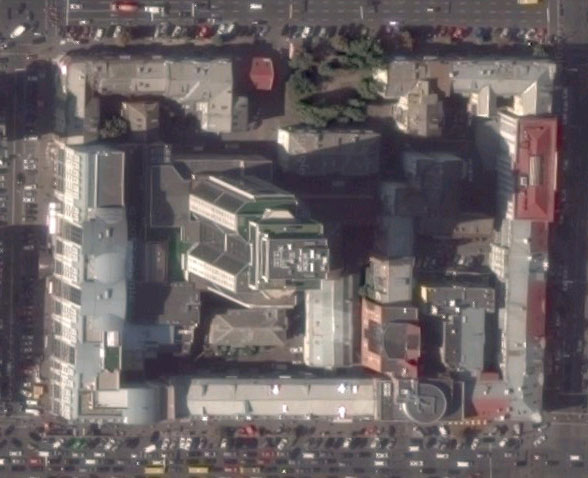
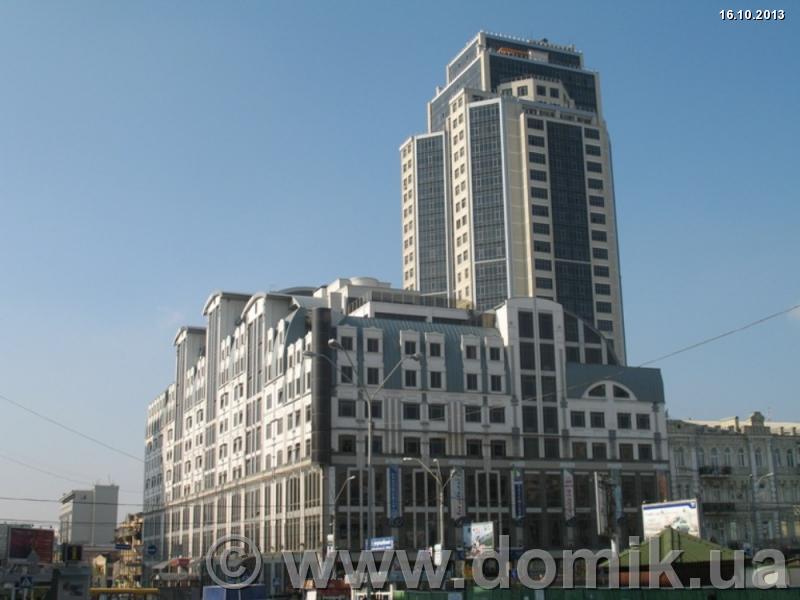
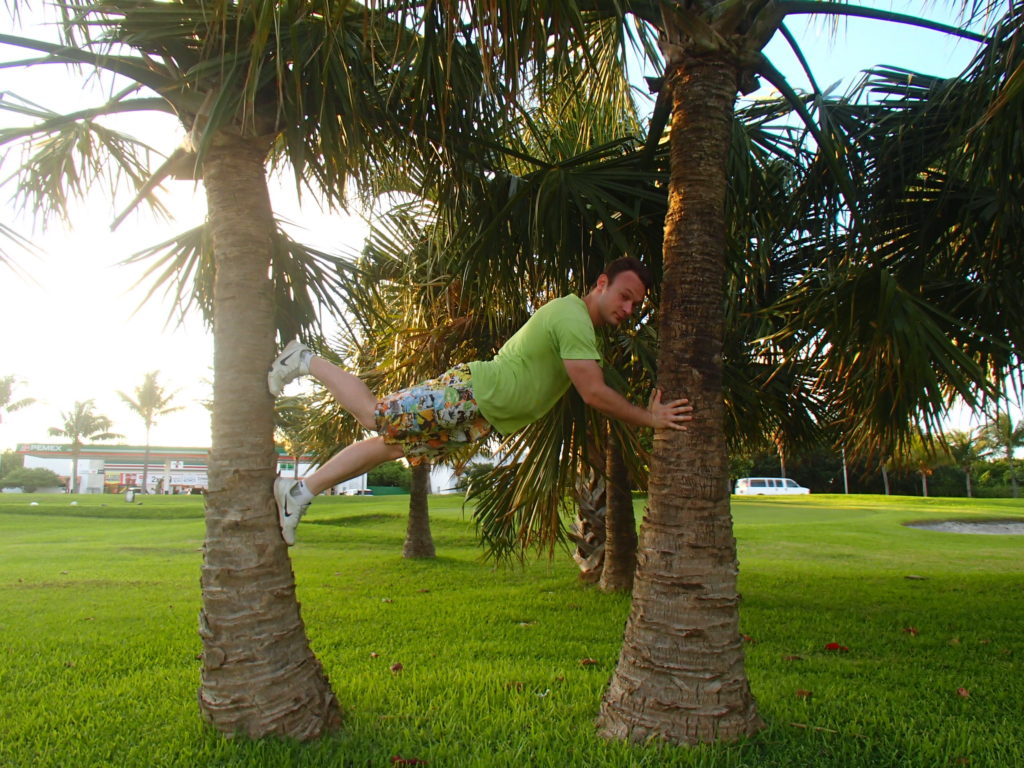
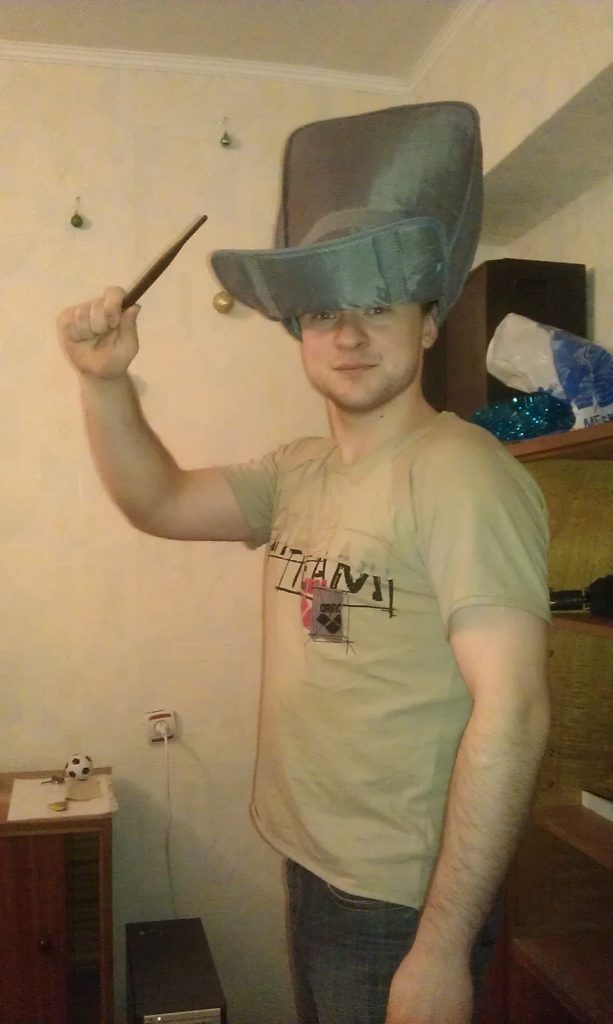
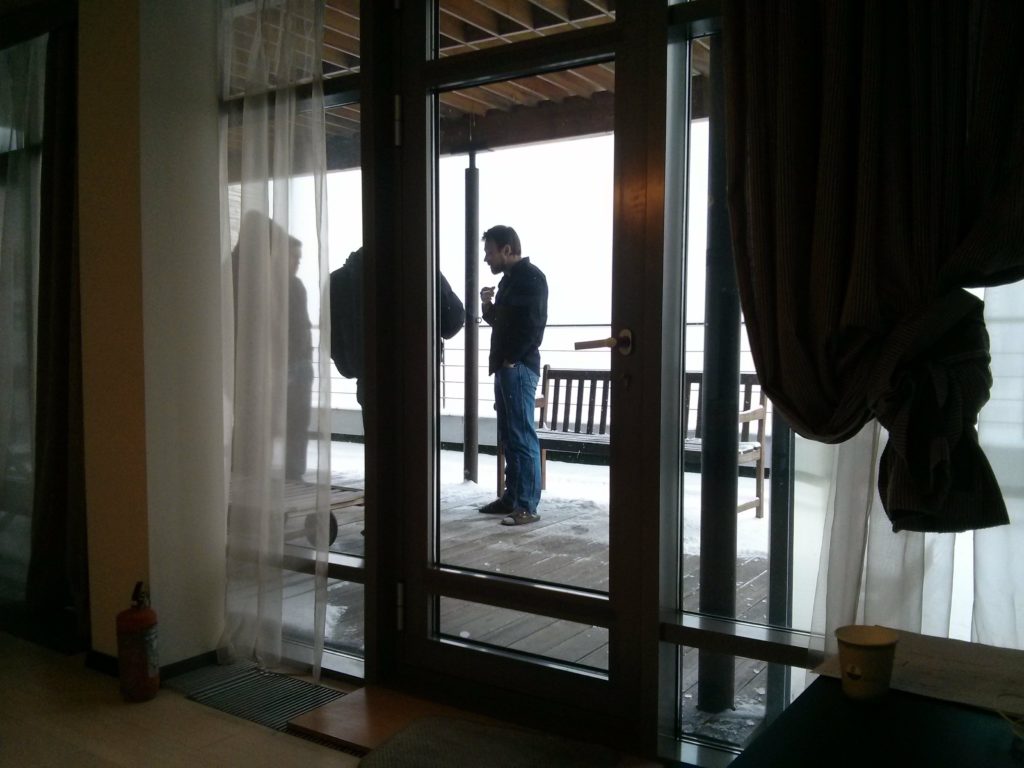

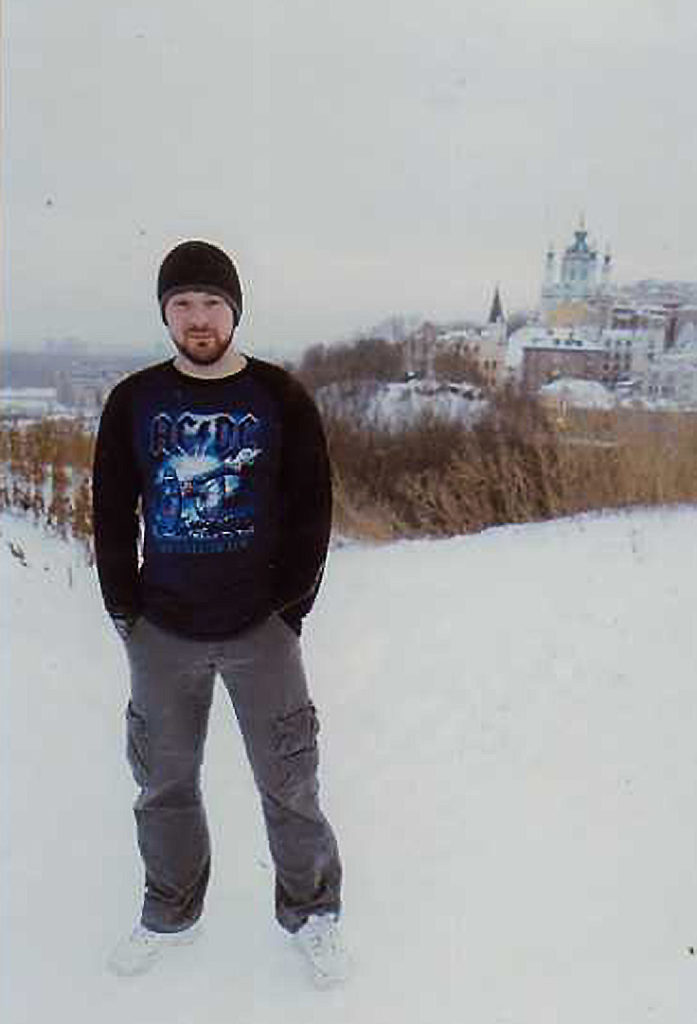



 ShareThis
ShareThis
I’m really sorry to read about this Chris. Mike sounded like an amazing person.
Best,
Adam
That was a wonderful post Chris. I am touched by your loss and that of such a kind, and astonishingly bright soul. I don’t believe we’ve ever met, but I hope to meet you some day; I wouldn’t pose any threat to your intelligence, but I’d love to chat about life any time. All the best.